|
Yesterday, Angels of Impact was honoured to be one of the presenters at Startup Asia Women’s Pushing the Impact Envelope at Unilever Level3. It was an insightful day of learning as corporations, startups, and individuals came together to learn how we can further social impact. Firstly, our Co-Founder and Chairwoman Laina Greene spoke about how women are empowering the bottom of the pyramid. She shared about 3 main points: Poverty and Sustainability, Women and Sustainable impact and Moving beyond Charity. On No poverty which is UNSDG #1, Laina shared how she believes poverty is the root cause of all evils. Take, for example, environmental degradation: it is often the poor who are forced to cut down the trees and participate in other unsustainable practices as their only means of income and livelihood. Laina also implored the audience to think about how are we perpetuating poverty? A shirt that the worker was paid 60 cents to make can be bought at $50. She encouraged the audience to be conscious and ask where the items they bought really came from. She then shared about Angels of Impact’s specially curated online marketplace of sustainable and ethical products which aims to bring forward the stories of the social enterprises we work with and encourage conscious consumerism. Next, Laina touched on women and sustainable impact. Data has shown that women are good investments. If we only have one dollar in the world give it to women who will solve the problem! Laina discussed that although we have achieved the UN Millennium Development Goal of halving extreme poverty in the world, there is still a phenomenon called the feminisation of poverty - where women represent a disproportionate proportion of the poor. This is because they are often the invisible infrastructure of society - they are the ones who have to walk for miles to find water, tend to the children and chores and carry out subsistence farming. As a result, they often get left behind when economic opportunities come. However, research shows that women are key to ending poverty. Income in the hands of the mother has a tremendous impact on healthcare and nutrition,far greater than the in the hands of the father. Thus there is a need to see women as the solution to ending poverty. Laina then touched on the need to move beyond charity such as through social entrepreneurship. For example, Angels of Impact works with social enterprises which have transparent and ethical supply chains like Krakakoa, Javara, Toraja Melo and Siam Organic to lift communities out of poverty. Laina then closed her speech by reaffirming Angel’s of Impact’s massive transformative purpose of creating a world without poverty in unity with women and bringing social enterprises to the market. She encouraged the audience to live out the 3 UNSDGs of #1 No Poverty; #5 Gender Equality and #12 Responsible Consumption and Production. Just starting with those have the potential to make huge impact. Later in the evening, our Co-Founder and CEO Audrey Tan shared about the what, whys and hows on investing in women social impact enterprises. Why begin Angels of Impact in the first place? One of the key reasons was a report published by Acumen and Monitor Group report which found that a lot of women businesses and impact businesses were too large for seed funding but too small for impact funding. This created a gap where they were not able to access financing. Furthermore, only 7% of Venture Capital funds go to women-owned businesses.
Audrey moved on to share that we should not see women businesses and women social entrepreneurs as victims who need help but rather to see that there is a need to include them into the agenda. It’s about giving women a voice. Research shows that women entrepreneurs are capable of handling large amounts of funding. According to Forbes, women entrepreneurs bring in 20% more revenue with 50% less money compared to their male counterparts. This shows that women are not victims, women are good investments and that we can invest in women. Next, a lot of impact investing spaces and groups are actually closed networks. Billions of dollars have been channeled into impact funding however many women-led social enterprises are still not getting access to the funding. Furthermore, many of these impact investments networks were for accredited investors only. This meant money was being circulated in closed networks. Audrey moved on to share how ordinary people can contribute to impact investing. For example, we can help fund local social enterprises. Many of these social enterprises have been trying to fundraise and close their funding gap for a long time. Angels of Impact comes into matchmake social enterprises to angel funders and angel investors. However, expectations of returns from an impact investor’s standpoint needs to be changed as high returns in a short period of time is not realistic for many social enterprises. She went on to share the personal story of Dinny Jusuf, the founder of Torajamelo, which is one of the social enterprises that Angels of Impact works with. Torajamelo works with women weavers across Indonesia to produce clothing, gifts, accessories, etc. Many of these women were victims of abuse or sex trafficking, and Torajamelo is able to give them a dignified livelihood and income. However, Dinny was unable to gain access to funding. Inspired by Dinny’s story, Audrey invested some money into Torajamelo--money that would have otherwise gone to donations. This model of financing is known as an evergreen fund, where the money loaned to these women entrepreneurs can be repaid back into an evergreen pool and re-invested to even more women entrepreneurs. Audrey closed her speech by sharing how Angels of Impact also invests time by linking women entrepreneurs with corporates, some of whom include companies such as Facebook, Google and Bloomberg. Many of these companies now purchase products from social enterprises such as Krarakoa and Javara for their pantries. By doing so, corporates are able to integrate doing good directly into their supply chains. We would like to thank everyone who came down to listen to Laina and Audrey speak, as well as all the other presenters who shared their own nuggets of wisdom. It was extremely heartening to see so many people passionate about furthering social impact all gathered together in the same room. Special thanks also to Startup Asia Women, who made the event possible and such a success. Last but not least, we would also like to thank everyone who expressed their interest in supporting our mission, and we look forward to further expanding our outreach from here on. We are incredibly grateful and honoured to have been nominated by the National Youth Council to receive the Ten Accomplished Youth Organizations (TAYO) in ASEAN Award. The award is given out to youth and youth serving organisations in ASEAN member countries that have implemented sustainable programmes, projects and activities that may be replicated by other organisations. From 17 July to 21 July 2017, in conjunction with the ASEAN Senior Officials Meeting on Youth (SOMY), Angels of Impact represented by our 2 Co-Founders Audrey Tan and Laina Greene, as well as our Innovation and Business Development Manager Bryan Lum, also participated in the ASEAN Youth Forum held at The Sultan Hotel, Jakarta, Indonesia. This award is especially meaningful to us as Angels of Impact strives to serve the ASEAN community by working together with women to alleviate poverty in the region. The meaningful connections and insights gained throughout these past week will certainly go a long way in achieving the UNSDGs of No Poverty; Gender Equality and Responsible Consumption and Production. We were also honoured to have had the opportunity to contribute to the ASEAN Joint Youth Statement where our Co-Founder and CEO Audrey, raise a greater emphasis of UNSDG #5, gender equality in ASEAN, to impact more girls and young people in the proliferation of social entrepreneurship. The week was filled with many insightful discussions and moments of inspiration as we participated in thought-provoking workshops, panel sessions and networking sessions. We were glad to have the opportunity to share our experience with social entrepreneurship with the community. We were also really excited to connect with like-minded individuals from Mynmar, Laos, Cambodia and the ASEAN states, who share our vision of creating a more sustainable and compassionate world. We would like to take this opportunity to thank our community of Angels for your neverending support and love. This award would not have been possible without you! As the event draws to a close, we remain ever-committed to our mission and we will continue working hard to create a world without poverty in unity with women. Want to know more about how you can contribute to the alleviation of poverty? Follow us on facebook and come to our next event! With the Singapore contingent, Silat stars, Shakir Senior and Shaykir Junior, team from NYC and MCCY
On the 11th of July, we were invited to BlackRock to share more about our work. In her speech, our Co-Founder, Laina Raveendran Greene, posed three overarching questions: why are we targeting poverty, why are we targeting women, and why social entrepreneurship? To answer the first question, Laina explained that poverty is often the root cause of many other problems, such as corruption or gender inequality. She also discussed how many businesses, such as fast fashion or fast food, often exploit the poor—when we purchase a new scarf at a great deal, how often do we stop and wonder how exactly that low price came about? The best way to combat that problem, then, is to spend your dollars on sustainable businesses instead, and A.I. has made it easy by bringing sustainable, responsible products directly to your doorstep. As for the second question—why target women—Laina urged the audience to close their eyes and think about poverty. The image that often pops up in your mind is that of a woman sitting at the side of a street, holding in a child in her arms and begging. Although we have achieved the U.N. Millennium Development Goal of halving extreme poverty, the majority of people still living in poverty today are women. This is because women are often the “invisible infrastructure” of the community: they are the ones who carry water, look after children, take care of subsistence farming, and so on. As a result, women are often left behind when new opportunities arrive. While women been left behind in the fight to eradicate poverty, data has now shown that women also make good investments. When you help a woman, you don’t just help a single individual; you also help her family and her community. Furthermore, according to Forbes, women entrepreneurs bring in 20% more revenue with 50% less money invested. In other words, investing in women is not just the right thing to do—it’s also the smart thing to do. However, there also exists an unconscious bias that women can only receive micro-finance. Although women have graduated from micro-finance, investors for the most part, have not seen how they are now ready for larger funds. As such, A.I. works to educate people, helping them to move beyond micro-finance and to support social enterprises to grow and scale. This brings us to our third question: why social entrepreneurship? Prof Yunus in his book "Creating a world without poverty" has clearly shown that we need to move beyond charity. Meanwhile, Richard Branson, states that the brands that will thrive in the years to come are the ones that have purpose beyond profit. These companies are not only more sustainable, but also help to create a more just society. A.I. recognises that the most sustainable way of to make an impact is through social entrepreneurship, and not charity or donations. However, the problem with many social enterprises is that they are too big for small loans, yet also too small for impacted investors at the same time. As a result, they end up stuck in a chasm that the Monitor Group in their report "From Blueprint to Scale" calls the “pioneer gap”.
A.I. has a pool of women social enterprises that they support that are at the cutting edge of this new kind of business. Laina raised the example of Krakakoa, which works directly with smallholder farmers in Indonesia for bean-to-bar chocolates. This allows farmers to move up the value chain, thereby getting out of poverty. A.I. has been working with them to help flow funding and open doors for sales to help them cross this chasm. Laina then urged the audience to donate their most precious resource of time and: their business-related skills. As a corporate, these skills are invaluable in helping social enterprises to succeed. Apart from volunteering skills, we can also directly fund these enterprises through investments and to support them by simply buying their products, be it as a personal or corporate gift. Laina ended the speech by recalling the words of Prof Muhammed Yunus: that poverty can be ended. If we all do our part, we can put poverty in the museums. Together in unity, we can, in fact, end poverty. Book launch of Sustainable Impact: How Women are Key to Ending Poverty @ Bloomberg, Singapore5/25/2017 We are delighted to share that we launched our first book, written by our co-founders Laina Raveendran Greene and Audrey Tan, as well as Lizzy Hawkins titled, "Sustainable Impact - How women are key to ending poverty" on 17th May in partnership with Bloomberg's Women Committee and Singapore Committee of UN Women at Bloomberg's Singapore office. We were honoured to have Vint Cerf, one of the founding fathers of the Internet as our Chief Guest. We were also joined by 2 of our partner social enterprises Color Silk and Siam Organic, all the way from Cambodia and Thailand! The evening was filled with moments of joy, words of encouragement and inspiration. We had a panel discussion, post the book launch, where we discussed why women are good investments. We also celebrated our first anniversary alongside the book launch! A big thanks to all our partners who made this event a great success! A shoutout to the team at Bloomberg's Women Committee, Team from UN Global Compact Network, our wonderful Sponsors SAP, ASEAN Foundation, UN Women, our volunteers and all who made this event possible! Our book is also live now on Amazon Kindle, Get yourselves a copy here Singaporean social enterprise joins hands to support women in the ASEAN Region4 May 2017, Singapore – “Money in the hands of the women can do a lot more good for nutrition, health and education of the child and the family…when you take a woman out of poverty, you take the family and the community out of poverty.” Laina Raveendran Greene, Co-founder of Angels of Impact posed these thoughts to the audience as she ended her talk at TEDxSingaporeWomen on October 2016. This year, Association of South-east Asian Nations (ASEAN) is celebrating its 50th anniversary and a Singaporean social enterprise, Angels of Impact (AI), is making contributions to the ASEAN community by supporting women social enterprises in the region to help alleviate poverty. This is a timely contribution to ASEAN, given that Singapore will chair ASEAN next year, in 2018. Inaugural Book Launch On 17 May 2017, Angels of Impact (AI) will be launching their first ever book, titled “Sustainable Impact: How Women Are Key To Ending Poverty” to honour Mother’s Day. This book was founded on AI’s massive transformative purpose of “creating a world without poverty in unity with women”. AI intends to do so by impacting 3 of the United Nations Sustainable Development Goals – #1 No Poverty, #5 Gender Equality and #12 Responsible Consumption and Production. How can this be achieved? AI passionately believes that if the community invests in and consumes responsibly produced goods made by women living in poverty themselves, the community can achieve 3 goals in one or as some would say “kill all three birds with one stone”. The book launch, happening at Bloomberg Singapore, will be a night of insightful discussions, showcasing examples and meaningful conversations. Vint Cerf, global Internet pioneer widely known as one of "The Fathers of the Internet" and Chief Internet Evangelist at Google, will be in attendance as the Guest of Honour, together with panellists from the Bloomberg Women’s Community, Singapore Committee for UN Women, Siam Organic and Color Silk to celebrate and discuss around the topic of “Women are Good Investments”. Coming together to make a difference So who is AI exactly? They are a social enterprise founded by Laina Raveendran Greene and Audrey Tan – two Singaporean women from two different backgrounds and generations, who share the same vision and strongly believe that they can make a difference in the community. They focus on women as good investments, and aim to maximize the social impact of money by working with enterprises, which in turn work with many women producing responsibly and getting the most effective use of resources. Sustainable Impact: How women are key to ending poverty The book, “Sustainable Impact: How Women Are Key To Ending Poverty”, will be available for purchase online via the AI website, www.angelsofimpact.com or via Amazon from 18 May 2017 onwards. All proceeds for the book will go towards the cause and help propel the mission and vision of AI and accelerate towards ending world poverty. More info about the book and Greene’s TEDxSingaporeWomen talk here: https://www.youtube.com/watch?v=GuepOWFAszo ###
On 11th March, we hosted our first-ever Circle of Angels event where we brought together representatives of 4 of our partner social enterprise, our guardian angels, prospective investors for an evening of sharing, inspiration and learning. The event was organized as the final event for line-up for the International Women’s Week, where we championed women’s right to equality in access to investments, in the field of entrepreneurship and in corporate life. .
At the event, we were honoured to be joined by The Batik Boutique, Colorsilk, Krakakoa, and Torajamelo, where they shared the stories of their ventures and the social impact that they are creating in their respective communities. On International Women’s Day, we had the opportunity to head down to PayPal and participate in their IWD celebrations. Our co-founder, Laina, took the stage and presented about poverty alleviation through women empowerment. She started off with asking us a question - what are we doing, or consuming, that perpetuates poverty? Using the example of fast fashion and fast food, Laina made us stop to think - are we doing more harm than good by consuming the way we do?
On the 21st of February, Angels of Impact had the opportunity to go to UBS’ Diversity and Inclusion luncheon, where our co-founder Laina Greene took the stage and presented about the importance of empathy for the future, and how women can amplify their strengths at the workplace.
Laina had a clear message to deliver - women can be, and are assets at the workplace, and should be valued as such. To do so, we must include women - Laina made a distinction between diversity and inclusion here. Quoting Verna Myers, Laina emphasises that inclusion enables diversity to become strength. This is so as diversity, combined with inclusion, can lead to better innovation and the attraction of better talent; in turn leading to better performances, better financial performance and better market share. Only when we overcome our ‘unconscious bias’ and be willing to change things ourselves, can women truly be “heard” at workplace and contribute their strengths to the workforce. On Tuesday 17th January 2017, we were honoured to be part of a panel discussion organized by National University of Singapore (NUS) Business School. Our co-founder, Audrey Tan, was the moderator and the panelists were Eugene Ho, Head of Corporate Affairs and member of the Senior Executive Team for SAP Southeast Asia and Roxanne Somboonsiri, currently a Global Brand Manager and head of partnerships across APAC at Facebook. While introducing the panel topic, Audrey shared that when she first started doing research on Creating Shared Value (CSV) she was a little confused as to why we needed this new terminology or jargon - coined by Harvard business school professor Michael Porter - in the enterprise space. However, she quickly realized that CSV emerged as Porter began to ask himself during his research if Corporate Social Responsibility (CSR) was really working. Was it really making a significant impact? Was it worth all the time, money and resources that were being poured into it? One of Porter’s key findings during the 2011 financial crisis was that companies, especially financial institutions were introducing products and services that were neither in favor of consumers nor the environment. Current examples include the palm oil industry in Indonesia and the ever-present matter of fast fashion in the retail industry. Looking at the existing negative social impact, Porter began to wonder if there was a better way. Could businesses do well profitably and do good socially? Porter actually started 4 non-profits himself, while trying to work out ways to tackle social challenges. What he discovered along his journey was that if you take on the role of a philanthropist, you essentially need to give up your own resources continuously, which is not exactly sustainable. Audrey referred to this as a bottomless pit. Therefore, organizations such as NGOs and charities that rely on grants and donations cannot really be self-sustaining over time. Audrey shared Porter’s three-step evolution of ‘The Role of Business in Society’.
Audrey then discussed the 3 levels of CSV:
Eugene Ho explained that the world is interlinked and the prosperity of people affects businesses. SAP has businesses in 110 countries and services in more than 325,000 companies globally. Their belief is that as they take, they must give back, so SAP adopted a number of sustainability practices, such as sustainable sourcing from green label products, providing humanitarian aid to Typhoon Haiyan, the Fukushima Tsunami and so on. Eugene shared candidly that when he joined the company 9 years ago, CSR was about sending their top executives to other countries to build homes and playgrounds, literally with cement and bricks. Eventually it was realized that they were in fact not making the best use of their human resources. The people they were sending away were experts at building business plans and marketing, so 5 years ago they began mentoring social enterprises and have continued doing so at a global level in numerous locations (and in Southeast Asia over the past 3 years). Another CSV agenda for SAP is to pilot new projects; for example they have an Asia-Pacific-Japan program called ‘1 Billion Lives’, where their goal is to touch a billion lives by 2020. SAP reached out to 21,000 employees in Asia-Pacific-Japan and asked them to submit ideas on an online platform on how to do good while still being a business. Out of more than 120 submissions, 3 were selected. Each project was given a budget of 200,000 Euros and was backed by operations and support. Eugene gave two examples of their current projects. One project is about working with a partner in Japan and using the iPhone to test the physical stability of a building. Using their analytic software and a seismic device you can find out if you need to leave the room you are in during an earthquake. Another project, based in India, is a partnership with a cancer institute where they use analytic software to devise customized treatment plans for Indian patients with cancer. Roxanne Somboonsiri talked about people being more likely to do things and make greater impact in groups rather than individually. Each individual can do things on their own, but when you come together as an organization, the impact can be much larger and more sustainable. She therefore encouraged all to collaborate in groups and work together towards social good. Attributing her giving nature to her childhood where volunteering at the Salvation Army was an integral part of family life, Roxanne was on the look-out for an opportunity where she could do the same in her corporate life in a more concerted manner. A chance meeting with Audrey at an event, and subsequently Roxanne’s perseverance, led to Krakakoa chocolate squares being showcased in Facebook pantries. Roxanne shared that what she thinks and feels must also be engrained in her corporate life, therefore really enjoying her work at Facebook. She explained that Facebook is in a very interesting position, with over 1 billion users on its platform and its mission being to bring people together and make the world more open and connected. Through Free Basics, Facebook is able to connect people in remote parts of the world to the relevant information that they might need. For example, they work with DTAC in Thailand and pay for Internet connections on people’s mobile devices in order to give them access to basic healthcare information in absence of medical facilities in the vicinity. So a mother living far from any medical center can search online to find out what to do if her baby is sick with fever. Facebook also runs internet.org where they connect rural areas through satellite Internet. The ethos of Facebook, according to Roxanne, is centered around the desire to bring a group of people together who are passionate about the greater good of society, whether that's locally, regionally or globally.
During the Q&A, Roxanne shared that anyone can give money, but the best way to make impact is to give your time and resources in the right manner. When you align your company’s mission with the betterment of the world and the society around you, you start to see real change. It’s about shifting mindsets, finding likeminded individuals - “change agents”, raising awareness and educating ourselves and others (for example, by knowing where our food comes from). Eugene emphasized the importance of sustainable sourcing and looking at the whole supply chain within companies. He suggested that if a company wants to seriously begin incorporating CSV into their business model, they should bring in experts to help make this process effective. Eugene also shared the 4 Cs of CSV:
After such an enlightening and inspiring session, we are positive and hopeful that in the future we will not need social enterprises as a separate sector, but that in fact all businesses will be aiming to do social good, with CSV at the very core of what they do! As 2016 comes to a close, we would like to take this opportunity to convey our deepest gratitude to all of our partners, customers and supporters. Since our inception in April this year, we have certainly come a long way. 2016 has truly been a blessed year for the “Angels of Impact” team. We would like to express our sincere thanks to our partnering social enterprises who believed in us from the very start. It has been a pleasure to have the opportunity to work and learn from our partner Social enterprises: Javara, Siam Organic, Toraja Melo and Krakakoa. In addition to the existing social enterprises, we would like to extend a warm welcome to two new social enterprises that have joined us aboard - Colour Silk and Batik Boutique! In addition, it is heartwarming to see how our family of Angel funders have grown. Thank you for standing by us! We wouldn’t have come this far if it weren’t for our supporters. Here are some of the highlights from this year: Merry Christmas Angel of Impact’s Christmas Fair What a wonderful way to celebrate the season of festivities and the success of our launch this year by organising a Christmas Fair. Products consciously produced by our Social Enterprises were displayed. Lurata Lyon, a survivor of sex trafficking shared inspiring insights with us. Read More. 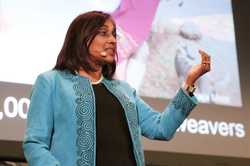 Ending poverty is in our hands. When we care enough about the cause, we can find sustainable ways to fight against poverty. Our co-founder, Laina Greene, shared a very inspiring and motivating speech illustrating her vision and goals towards ending poverty. “Women are the solution to ending poverty.” She shared insightful examples on how women can be the key solution to effectively address the problem of poverty. Read more. Many times women face challenges at work place due to conscious or unconscious biasness. All these sharing reminded us how important it is to empower women in every aspect of life, not just in the workplace, and this is what Angels of Impact aims to bring to greater consciousness if #genderequality. Read more. Social Enterprises Insights “Why are you doing something so risky?”: Women-led social enterprises and finance Seemingly contradictory objectives (poverty and profit). What response do women-led social enterprises get when they seek finance? Social enterprises and associations gathered to talk about their challenges. The investment world is not yet adapting to their needs. Other than finance there are other challenges and ways to counter the financial challenges. Read more. Our co-founders Laina and Audrey were keynote speakers alongside senior women from different firms at the recent Connected Women Singapore gathering at Twitter. They confronted issues that women frequently face at the workplace and shared insights that will help set anyone up for success! Read more. 2016 has been a win-win for Angels of Impact Team! Twitter showed their support and we customised Krakakoa Chocolates sleeves for them! Customised Toraja Melo coin pouches for NUS Overseas College, Singapore Facebook@women showed their support by purchasing Krakakoa’s chocolate squares. We are very happy to have you onboard with us in your own unique ways and we are very grateful for your continued support. Look out for more exciting events coming your way in 2017!
With lots of love, The Angels of Impact Team 2016 was fortuitous as we were able to share our message of creating impact via sustainable steps with Corporate giants like SAP, Credit Suisse, UBS, Linkedin over the festive season. Christmas season is all about spreading happiness, smiles and kindness. We had the opportunity to display, share stories and sell products consciously by our partner social enterprises. By being able to showcase the stories of our social enterprises and their products we were able to share the spirit of giving with a difference with a larger audience. The delicious chocolates from Krakakoa were always the most popular. These Artisanal chocolates are made by low income farmers. The employees of these organizations got to try these unique Chocolates that made with Chili, ginger, cinnamon and sea salt mixed with Cocoa. This interesting combination of Chocolate and spices are not only rare but are produced in the most socially responsible manner. We were also carrying products from Javara and Siam Organics which were a big hit. The Coconut Biscotti from Javara was the star product. Siam Organics themed teas were quite popular as gifting options too. The teams made good of this opportunity and loads of them bought the snacks and chocolates to share as gifts with family and friends . Furthermore, we had batik gifts, clothing and hand crafted products by Batik Boutique. Batik Boutique is a social enterprise from Malaysia that supports low income single mothers. Last but not least, we showcased handwoven crafts by Toraja Melo. A social enterprise from Indonesia that offers employment to girls in village across Indonesia and helps them keep away from being a victim to sex trade due to lack of sustainable livelihood.
With our partnership with conscious corporates like above, we come back humbled and motivated that there are many more like us who would like to create impact in their own way. We hope to reach out to more such supporters and champions in 2017 so that we can collaborate more deeply. On the 9 Dec, we held a Christmas Fair in our very own office. We showcased the entire product range of our Social Enterprises. Light dinner was also served. Shortly after, we had Lurata Lyon share her inspiring story with us through Skype. She was unable to be with us in person due to an unfortunate accident. However, we were very happy that she was keen to be with us via Skype. Lurata is a survival of sex trafficking during war time at the height of the former Yugoslav conflict. She courageously shared her story and how she managed to overcome her struggles and emerged strong enough to tell her tale. She introduced her book, “ The Devil Couldn’t Break Me” which shares about her ordeal post her abduction by a sex trafficking gang. She also shared what kept her going during the worst of times - family and her desire to help others facing the same situation. The session ended with a short Q&A followed by an introduction to the team at AI. We also took the opportunity to thank the Angels who have so graciously supported us from the start. With this event, we were therefore able to bring home the point that buying consciously produced goods and supporting organizations that working towards sustainable livelihood and alleviation of poverty can eventually save lives. One of our attendee, Jo, aptly shares her takeaway: "For the first time, it helped me realize that women are actually the worst victims of poverty. For example, in third world countries, women often have less opportunity for education; and it's also more common for them to be the target of human trafficking. What Lurata has gone through is beyond the imagination of most people who are carrying out a much more stable life. Something that touches me the most is how she managed to keep the hope and the desire to live in the seemingly hopeless situation. It was the love from her parents, and the love for her parents that kept her going. This is another great lesson that teaches us to believe in love. Everyone has a moment in our life wondering how to carry on or whether we should carry on, when we just can't see the light. And that's the time to take a step back and think about how lucky we are to have what we have, to be loved and to be able to love." “Women are the solution to ending poverty.” Our co-founder, Laina Greene, was sharing this powerful message in a Tedx Talk on 29th October 2016. Joined by three other women on the stage, the day was filled with the sharing of touching, inspiring and motivating stories that demonstrated our ability to catalyse positive change in the world if we only believed in ourselves and encouraged each other to step up and take action. Laina began by asking us what we typically visualize when we hear the word “poverty”. An image of a woman and a child begging on the street immediately came to my mind. Laina pointed out that like me, many others visualize poverty this way as it is an issue that predominantly affects women. She shared a painful truth – this was indeed the reality where one out of every 7 women in the world do live in poverty. The burden of poverty is borne mostly by women as they are the ones who walk for miles to collect water, the ones who do the subsistence farming, take care of the elderly and children and so they are seldom the beneficiaries of efforts which have succeeded in reducing poverty in the world. This was confirmed in a study by the UNDP which even reported that that as many as 70% of the world’s poor were women. This phenomena where women get left behind in poverty alleviation efforts is known as the “feminization of poverty”. Laina shared her passion for empowering women in poverty and told us why we ought to care since data shows that when women get out of poverty, her family and her community also gets out of poverty. She shared insightful examples on how women can be the key solution to effectively address the problem of poverty. She shared Mohamed Yunus’s idea in his book “Creating a world without poverty” of how we should move beyond charity. Instead, we should support social businesses or social enterprises that have sustainable business models that in turn help many mpre women micro-enterprises restore dignity and have sustainable livelihoods. Only with sustainable livelihoods can these women truly end the cycle of poverty. Laina shared a story of a compassionate and admirable woman, Dinny Jusuf. She is the founder of Torajamelo, an Indonesian social enterprise helping 1,000 micro-enterprises of women weavers. Dinny provides these women with access to global markets, better prices for raw materials, help understanding market tastes and proper training so that they satisfy quality standards demanded by customers globally. Dinny did much to also elevate the status of wearing weaving by having key celebrities and even fashion shows, and now there is even a demand for weaving locally in these villages. By providing these women with a regular income for their weaving, Dinny is providing each of them with a sustainable livelihood. Torajamelo has been recognized globally not just for its noble cause but also for its quality and authenticity of its designs. While the brand’s success has prompted many weavers from other parts of Indonesia to request for a partnership, it is not all smooth sailing for Dinny. She is constantly faced with challenge of raising funds for her social enterprise. According to Laina, women rarely get funding and even if they do, it tends to be a very small amount as women are seen as being incapable of running large-scale businesses. This is where, Laina says, you and I come in. Laina started funding Torajamelo out of her own pocket and soon after, her friends who shared a desire to support the same vision joined. Inspired by the movement they had started, Laina and Audrey co-founded Angels of Impact. Through a trusted network of friends, Angels of Impact seeks to serve women-led social enterprises such as Torajamelo to continue transforming the lives of women. The response has been nothing less than amazing; within four short months, they managed to rally a movement of individuals and corporates who want to do good with talents, gifts and skills they have. It was fascinating to hear about how Angels of Impact was helping women lift themselves out of poverty. The best part is that any one of us can be a part of this force by following a few simple steps:
Ending poverty is in our hands. When we care enough about the cause, we can find sustainable ways to fight against poverty. No one is perfect, everyone makes mistakes. Heart to heart experiences were brought up on stage with a panel of three incredible women – Saleenah Ismail, Penny Burt and our dear Co-Founder of Angels of Impact, Liana Green, during one of the sessions during the first Women@facebook for South East Asia. One of the questions raised by the host of this session – What is one of the biggest mistake you have made as an entrepreneur?
Everything happened for a purpose, and people come into your life either as a lesson or a blessing. These ladies transformed difficult circumstances into positive motivation, and we were privileged to be able to learn from their experiences. Never be ashamed of past mistakes and strive to be better by learning from those mistakes. Many other issues were raised by the ladies during the panel, sharing of some of the challenges faced by them in the work place before. For example, when a woman raises an idea, it doesn’t create as much resonance with the team as compared to when a man raises up the same idea. A Whitehouse post recently shared how women used, "amplification" to reinforce and reiterate fellow women's voices around a male dominated meeting. What's important to keep in mind, is that do not be restricted by the labels that the society has placed on women. If you know you are doing it right, you go girl! Be strong, be courageous, and women stick together to create an inclusive community to help one another with all these seemingly difficult hurdles to overcome. Many times women face challenges at work place due to conscious or unconscious biasness. All these sharing reminded us how important it is to empower women in every aspect of life, not just in the work place, and this is what Angels of Impact aims to bring to greater consciousness if #genderequality. We are truly grateful for this opportunity to take part in Women@Facebook, to witness these women’s faith and dedication in the empowerment of women. Ladies, now go forth and kick ass!
Transformative experience of co-creation at 2016's Crossing the Chasm Challenge by NUSACSEP9/19/2016 Congratulations to NUS Asian Center for Social Enterprise and Philanthropy (ACSEP) for putting together an amazing 2016 crossingthechasmchallenge.com Participants who came shared that they had learnt much from the students, what stood out was the disposition of humility and empathy that the students embodied as they went down to the construction sites to listen and learn from migrant workers on how best to connect them to valuable english classes that SDI Academy brings to migrant workers to improve english proficiency. I spoke with Manas, the Co-founder of SDI Academy and asked him what was the greatest insight that he had learnt from his experience and he shared, "That each of us have our own personal biases and presumptions, the fact that the students persisted in calling up the dormitories to introduce SDI Academy english classes through new channels as such, made him re-think how things can be done differently!" A hearty congratulations to SDI Academy and the student team! 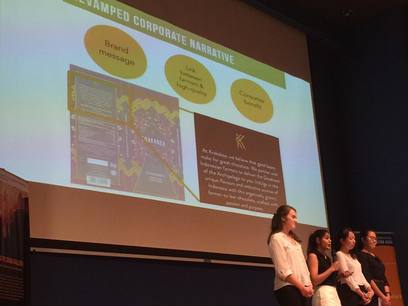 A wonderful hooray also to the runner up Kakoa Chocolate, who will be rebranding to KraKakoa, walking away with the runner up as well as people’s choice award. Kakoa is a local chocolate producer that aspires to improve the livelihoods of Indonesian cocoa farmers. By buying directly from farmers, the high price premiums that Kakoa provides go directly to them. Beyond this, Kakoa also supports their farmers through training programs to improve their education. Angels of Impact is proud to be a partner alongside an amazing group of dedicated mentors, judges and sponsors who gave of their time and energy to ensuring collaborative learning, success and value to students as well as the social enterprises. We are incredibly grateful for the opportunity to showcase our curated social enterprises' high quality Torajamelo artisanal gifts, wonderfully delicious Javara coconut chips and jam! They two companies were also participants in CCC2016. Also showcasing the 2016 winner of the DBS-NUS Social venture creation challenge, Siam Organics. Watch this space for our Christmas specials coming up! With our payment partner Coinpip Torajamelo Founder Dinny Jusuf with Nadia, a student participant in CCC and Anay, their mentor from P&G.
As Prof Albert Teo puts aptly in his presentation, "Go beyond the transactional, aim for the transformation - Dacanay, 2015" I believe this was an immensely transformative experience for the students, mentors, founders of the social enterprises, as well as for many of us who watch with immense pride how our young minds can give of themselves, their precious time, ideas and energy to make the world a better place :) About CCC There are many pioneering social enterprises in the region that are now too large for seed-funding yet too small for accelerator grants or impact investors. The Crossing the Chasm Challenge 2016 aims to fulfil a critical need for these enterprises, where students team up and work alongside partner social enterprises to co-create a marketing strategy and pitch. This year’s challenge theme is based on UN Sustainable Development Goal 1: End poverty in all its forms everywhere. The five selected teams present their marketing pitch on generating awareness for their social enterprises and promoting their solution to judges from Tanoto Foundation, MarkPlus, Inc., APCO Worldwide, GE Healthcare and Twitter Singapore. The students are guided by senior executives (industry mentors) from Akamai, APCO Worldwide, AutoWealth, Catalyst Health Asia, Credit Suisse, Ernst & Young, MarkPlus, Inc., MasterCard and P&G. An Angel is one who champions, volunteers and supports a social enterprise through the purchase of their responsibly made goods individually or as an organisation! Delightful day with LinkedIn Singapore! We got the chance (thanks to our Angel host Yee Yeung who rallied us!) to share how Angels of Impact supports women-led social enterprises. We are incredibly humbled to find so many Angels pre-ordered chocolates from our Angel Social Enterprise, Kakoa. Some of Kakoa's absolutely delicious chocolates include Cashew Coconut Nibs, Dark Chocolate and their best-seller Cashew chocolate bar. These passionate individuals were so happy to be able to buy responsibly-made chocolates for themselves and even as corporate gifts - part of the wonderful #linkedinforgood campaign! We believe they are all Angels. Anyone who supports responsibly-produced goods and helps spread the word about our amazing Social Enterprises are Angels to us. Sharing Kakoa's products with LinkedIn is part of our mission to bring responsibly-made products to a wider audience. We know that people don't want to harm others when they buy things, but it's so difficult to know how the things we buy affect the people who make them. That's why we're so excited about companies that put responsible production at the heart of what they do. When you buy a responsibly-made product, like chocolates from Kakoa, or clothing and gifts from Torajamelo, another of our Angel social enterprises, their supply chains are transparent and you know the the people who make them are well-treated. You can be confident that by buying their products, you're making people's lives better, not worse. What do we mean by a transparent supply chain where people are well treated? Watch the video: it shows the difference that Torajamelo is making to the lives of women weavers in Indonesia. We are passionate about bringing products made by companies like Kakoa and Torajamelo to as many people as we can - because everyone wants to have a positive impact on the world, and buying responsibly-produced products helps us to do that! Our very lovely host Yee Yeung from LinkedIn, and Shria, truly an Angels indeed! Along with our amazing volunteer teamates Airashi and Legha!
Social enterprises are held up as a more sustainable solution to social and environmental problems than donation-hungry charities and non-profits. But when we brought together 33 social enterprises and social enterprise associations to talk about their challenges, we found that the investment world is not yet adapting to their needs. 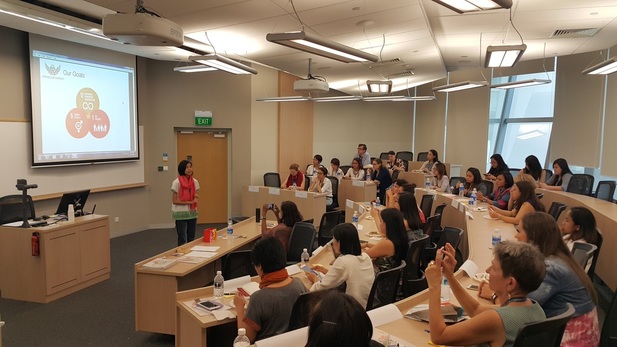 A.I. Co-Founder Audrey Tan tells the group about A.I.'s 3 Global Goals A.I. Co-Founder Audrey Tan tells the group about A.I.'s 3 Global Goals What response do women-led social enterprises get when they seek finance? What do they want finance for and what repayment terms can they make? What other challenges, other than finance, do social enterprises face? We asked our group of 33 women-led social enterprises and social enterprise intermediaries these questions. We wanted to understand their issues and to test the assumptions underlying Angels of Impact’s model of offering membership-funded, low-interest, long-term loans to social enterprises. "Can I see your marriage certificate?"We wanted to know if these organisations faced particular obstacles because they were run by or for women. First the good news. Our group of intermediaries - which included impact investors and grant-funding organisations - reported that women pitch well and tend to be more convincing because they’re much more pragmatic and realistic about what they can achieve. However in their experience, it’s mainly men who are pitching for and getting funds. Women tend to rely on friends and family far more before they’ll consider formal financing. Women are also more risk averse: they’ll usually only raise what they believe they can get back, and they’re usually more reluctant to pitch to scale up the business.
Little interest in social impactWhen we talked about the response the social enterprises got when they sought funding, we found that they were asked all the usual questions you’d expect a company seeking finance to be asked: what’s your business plan, what are your KPIs, is it sustainable, what’s your track record? But our social enterprises reported some interesting attitudes from the investors they’d pitched to. Even the impact investors were still focused on financial returns and had little interest in social impact. One social enterprise has stopped seeking equity funding because “they will try to pull you away from your mission to boost their financial returns” – a common sentiment that got a lot of nods. There is still a widespread incredulity among investors towards a company genuinely committed to impact before profit. As one investor had apparently put it, “Why are you doing something so RISKY?!” "Family, friends & fools"As a result of the difficulties they face getting mainstream finance, many of our social enterprises reported that they’d gone down some unconventional roots to fund their growth. One had created all her prototype products on equipment bought on credit cards. Another relied on volunteers and donations and several had relied on their own savings to establish the business. Someone quoted the phrase “when you first start a business, it’s only family, friends and fools who’ll support you” – then added that even her family wouldn’t support her for months until her mother gave in and gave her a loan. Many had sought – and some had received – grant funding, which had made a huge difference to their business. Even grants, however, came with their own set of issues. These ranged from the amount of time required to complete grant application to a story of a donor programme that shut down halfway through the funding period – after a time-consuming application period that took months. Grant programmes were focused on specific projects and were reluctant to fund necessary overhead costs. Direct government support was rare: one lady found that her Government was very supportive of her education project and asked her to establish it in five other schools; a great show of support until she learned that they weren’t planning to pay her. “They are waiting to see this project succeed before they fund me – they don’t realise that funding me will save them money elsewhere and make me far more likely to succeed!” "We have to pay the weavers - or what's the point?"
The biggest issue was finding money to cover operational costs. Foundations and grant-giving organisations didn’t want to cover working capital costs, while investors just didn’t want to invest at all. New models neededIn short, while the concept of social enterprise and impact-first businesses is praised, and social entrepreneurs held up as heroes, on a day-to-day level life is a constant struggle. Neither the financial market or the grant-giving world is set up to provide what these companies, operating at the tightest margins and changing the lives of the world’s poorest, need to survive and grow. Equity risks losing the company’s core mission. Grants won’t cover overheads. Loans come with a heavy interest rate because the value of social impact doesn’t translate to the financial bottom line. Ideal financing modelsSo what is the answer? We asked the group what financing models would work best for them. The answer was pretty simple and agreed by most people: the social enterprises wanted to see low-interest (below 5%) lines of credit with at least a one-year grace period, and repayment mechanisms that included in-kind repayments and repayment through profit-sharing. Grants which covered operational costs and had a simple application process were also on the wish list. Now, you might read this and think, “Well of course they’d like that: those are the easiest terms possible! No investor could offer those terms to such a high-risk venture!” And you’d be right. But if we believe that impact-first businesses are a big part of the solution to tackling social problems, then we need new models of finance that allow them to do that. Of course a traditional investor – even an impact investor – which gives low-interest loans repaid over a long period of time won’t be able to make any money. Final lessonsWe learnt other things as well. Our final question for the group was “other than finance, what are your three biggest challenges?” By far the most common answer was “SKILLS SKILLS SKILLS!” So we’ll look at what our community can do to support our social enterprise Angel members with skills development in the future. We at Angels of Impact are working closely with our social enterprise Angels to co-create the appropriate networks, support and funding structures that best suit them. We’d love to hear your thoughts on what the Angels of Impact community can offer. And we’d love to learn more about challenges and solutions to financing impact-first businesses. Please leave a comment below or contact us - or join the discussion on our Facebook page!
If you're a social enterprise and you'd like to become part of our network, sign up here. We're delighted to announce that today is the first day of a month-long social enterprise promotion at cutting-edge creative retailer Naiise. Angels of Impact has been working with raiSE, the Singapore social enterprise body, to bring social enterprises' goods to Singapore's biggest shopping street. The pop-up shop at Naiise's Orchard Central store marks the start of raiSE's 'Festival for Good', which will culminate in with a weekend of music, workshops and entertainment to celebrate Singapore's social enterprises. The pop-up on floor 2 of Orchard Central shopping centre features products from eight social enterprises, ranging from clothes, bags and notebooks to t-shirt recycling kits and jewellery. The best news is that the pop-up features some of Angels of Impact's very own Torajamelo's products! You can buy Torajamelo's bags, blouses, kaftan, bags and notebooks, all crafted in Torajamelo's signature tenun weaving. It's beautiful stuff - come and take a look!
Twitter's VP Online Sales Aliza Knox kicks off the event Why aren’t more women getting to the top of organisations? What do they need to do differently? Is it particularly difficult for women to get on in the tech-industry? Angels of Impact’s resident gurus, Laina and Audrey, confronted these issues at when they were keynote speakers alongside senior women from Facebook, LinkedIn, Twitter and IT firm Akamai at the most recent Connected Women Singapore gathering at Twitter HQ. Connected Women Singapore was formed by ladies at Twitter, LinkedIn, Google, MasterCard and Facebook, to connect and inspire women across the tech industry to fulfil their potential. Wednesday’s #ELEVATE event brought together over 100 women – and a few men – to ask “how do we elevate our career and own our success?” A.I.'s own Laina Greene struts her stuff “Have you ever said something in a meeting that went unheard, only for a man to say the same thing minutes later to wild applause?” This was Laina’s first question when she took the stage – and the audience nodded vigorously! Laina has been a pioneer for women in the tech industry throughout her 25-year career: she was the first woman Secretary General of the Asia Pacific Internet Association in the mid-1990s, the first woman policy advisor at the Asia Pacific Network Information Centre and is an International Steering Committee member of the Global Telecom Women’s Network. “When I started I used to wear dark colours, tie my hair back – do everything I could to make my colleagues forget I was a woman,” she told the crowd. Referring to Lois Frankel’s book, ‘Nice Girls Still Don’t Get the Corner Office’, Laina offered her tips for success.
Panel, left to right: Melinda Petrunoff, Alex Roza, Audrey Tan, Rachel Fitzpatrick, Maya Hari The panel that followed was chaired by Senior Director of Product Sales and Strategy at Twitter Maya Hari and consisted of Angels of Impact’s own Audrey Tan, plus Senior Director at Akamai Rachel Fitzpatrick, Head of Lynda Sales at LinkedIn Alex Roza, APAC Head of Gaming at Facebook Melinda Petrunoff. They talked about using humour to diffuse sexism “when someone calls me sweetheart, I call them sweetpea. They don’t do it again”. They talked about the importance of sharing the family workload – and using tech to make life easier. And most of all they talked about how important it is to always be learning, to take risks and to look after one another.
See you at the next one! Buying beautiful, buying responsibly: making social impact mainstream. This week saw the launch of ‘Conscious Collection’, a new partnership between Jakarta-based premium furniture company Arbor & Troy and social enterprise Torajamelo. Conscious Collection products have been co-created between the two companies, bringing together Torajamelo’s exquisite traditional woven goods with Arbor & Troy’s signature style. The partnership is a historical moment for the two companies, and it’s a welcome sign that mainstream, for-profit companies are taking practical steps to have a positive impact on the world. Arbor & Troy is a for-profit luxury furniture company; Torajamelo is a social enterprise which uses traditional Indonesian weaving techniques to create contemporary fashion, gifts, homewares and accessories. Torajamelo is dedicated to bringing dignity and transformation to the lives of women weavers in remote areas of Indonesia while preserving the exquisite weaving technique known as tenun. The partnership is a living example of a social enterprise's goods and services becoming integrated into the supply chain of a traditional business. This practice has been called ‘shared value’ - Michael Porter explained the concept in a Harvard Business School article. Shared value models aim to be win-win for the for-profit and the social enterprise: the social enterprise grows its customer base, and so can earn more money and increase its impact, while the traditional business can show that its feel-good values are more than just hot air. ‘Shared value’ partnerships are about more than just Corporate Social Responsibility (CSR). CSR is commonly seen as a tired way of ‘white washing’ a company’s reputation: a sleight-of-hand where a company noisily plants trees with one hand while quietly cutting down more with the other. Shared value is not just about selling a social enterprise’s goods for a one-time, feel-good experience. Instead, shared value is about for-profit businesses recognising that a social enterprise’s products and services complement its own, and that a partnership will not only have a positive social impact, it will actively improve the business’s performance and value to the customer. In essence, it’s about good business sense. The Conscious Collection collaboration shows shared value in action. The endeavour is not a donation based model, like you seen on products where 10% of the price goes to a certain charity. The relationship is stronger and more sustainable than that. To Arbor & Troy, Torajamelo has become a strong, mindful and common sense alternative supplier of tenun that Arbor & Troy can integrate into their furniture collection lines. Mama Sabbi, a master weaver, who is also TorajaMelo's Community Liaison and Quality control Officer. Since 2012, she has been teaching the younger women the pa'bunga motif which had almost disappeared four years ago, and she rejuvenated the already extinct matapa' motif a year ago. Here she demonstrates how the motif is crafted through the threading and the weaving. This was her first time in Jakarta. The work that Torajamelo started in the rural villages have also contributed to the increase in pride of rural villages wearing tenun. Before Torajamelo began its work, many of the local women were unable to find good prices for their weaving, and often moved away to work as servants overseas. Indonesian domestic helpers in other countries risk ill-treatment, abuse and becoming victims of sex trafficking. As the women weavers now earn a good living through the reinvigorated art of weaving, they are able to remain with their families and take pride in their skills. Torajamelo now works with over 1,000 weavers and in doing so has transformed whole communities. As Torajamelo’s founder Dinny Jusuf says, “We think that Toraja women weavers are strong people. We do not think we need to empower them because they are already powerful … all they need is access to market and capital.” This sort of collaboration is good news for us as consumers, too. For most of us, our relationship to material things is often disconnected. We have little clue about how the things we purchase regularly are made and the conditions in which they are being made. From time to time we see an article, maybe about the unethical practices of big fashion companies in poor working conditions for the factory workers, or when we learn the impact that our favourite brands are having on the lives of the people who help to produce them. We seldom know at what and whose expense our purchases are being created. Social enterprises like Torajamelo, and collaborations like the Conscious Collection, serve the growing appetite to buy responsibly. As buyers become more and more aware of the responsibly produced goods that make a difference for the producers in the supply chain, collaborations like these make good business sense.
|
Angels of Impact A.I.Receive thought leadership, news, updates and events activities Archives
July 2017
Categories |
||||||||||
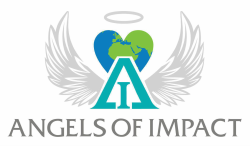

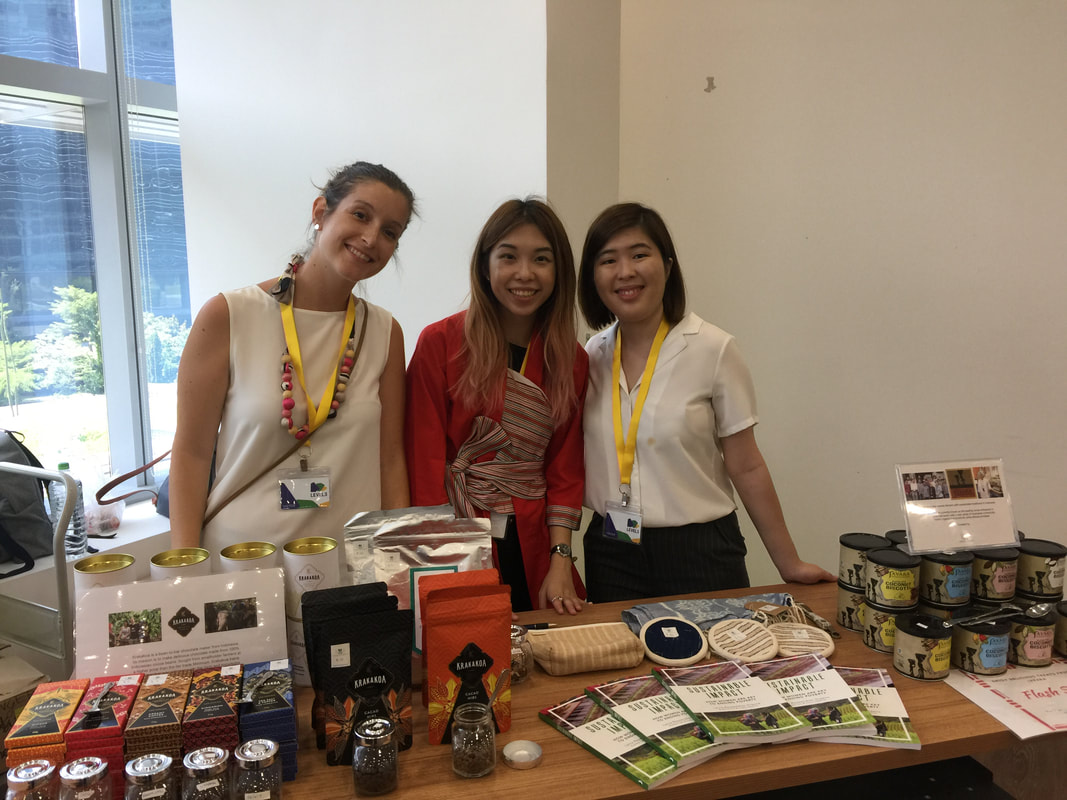

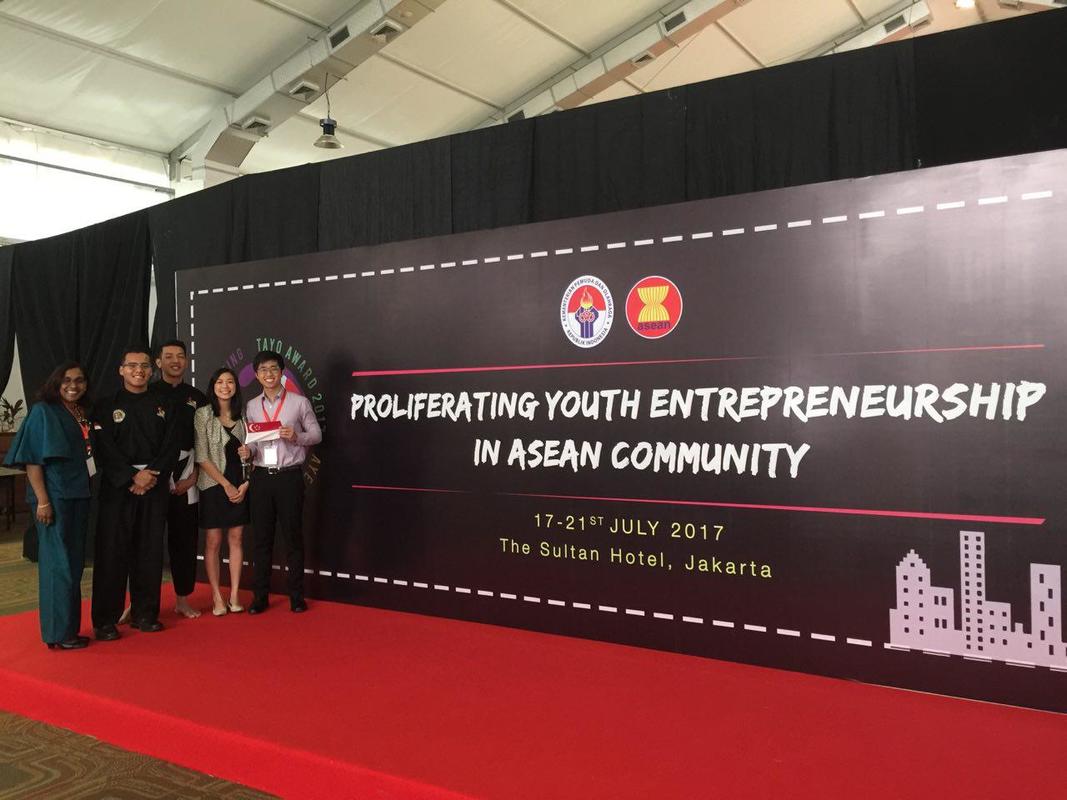
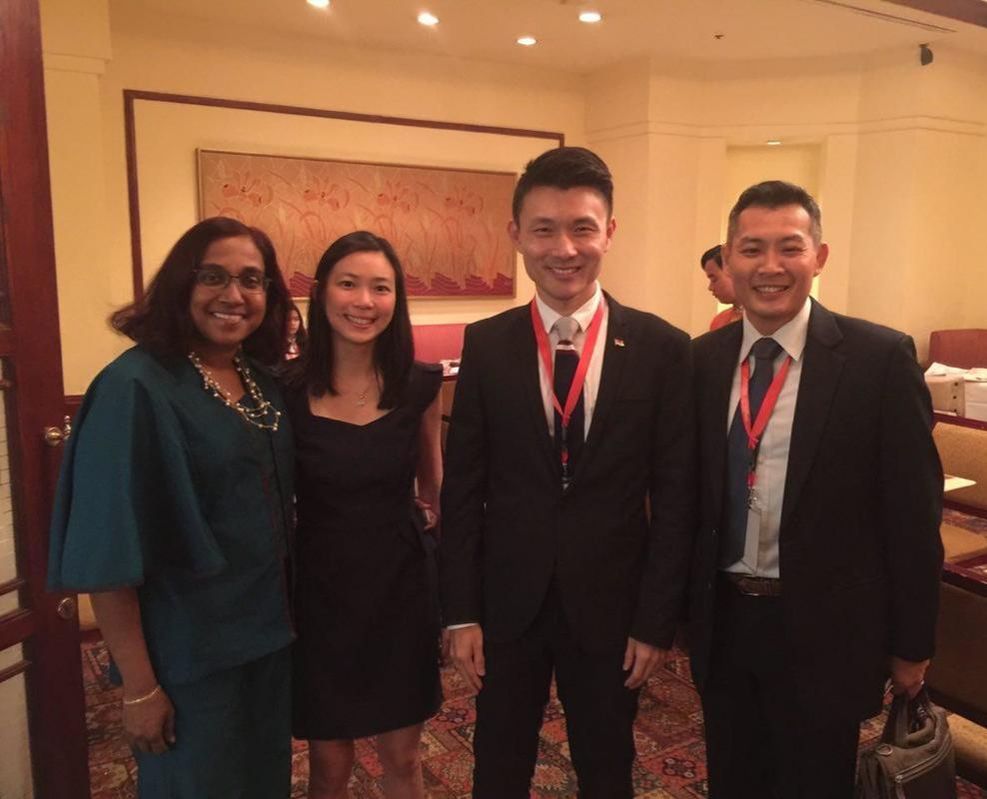
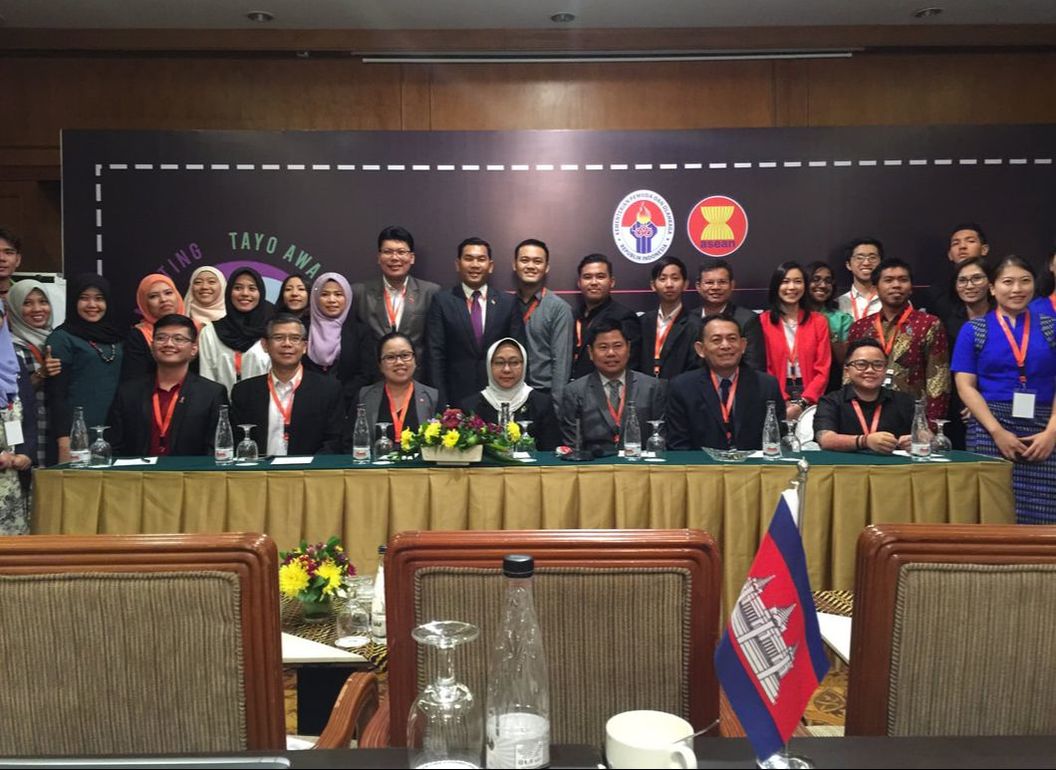
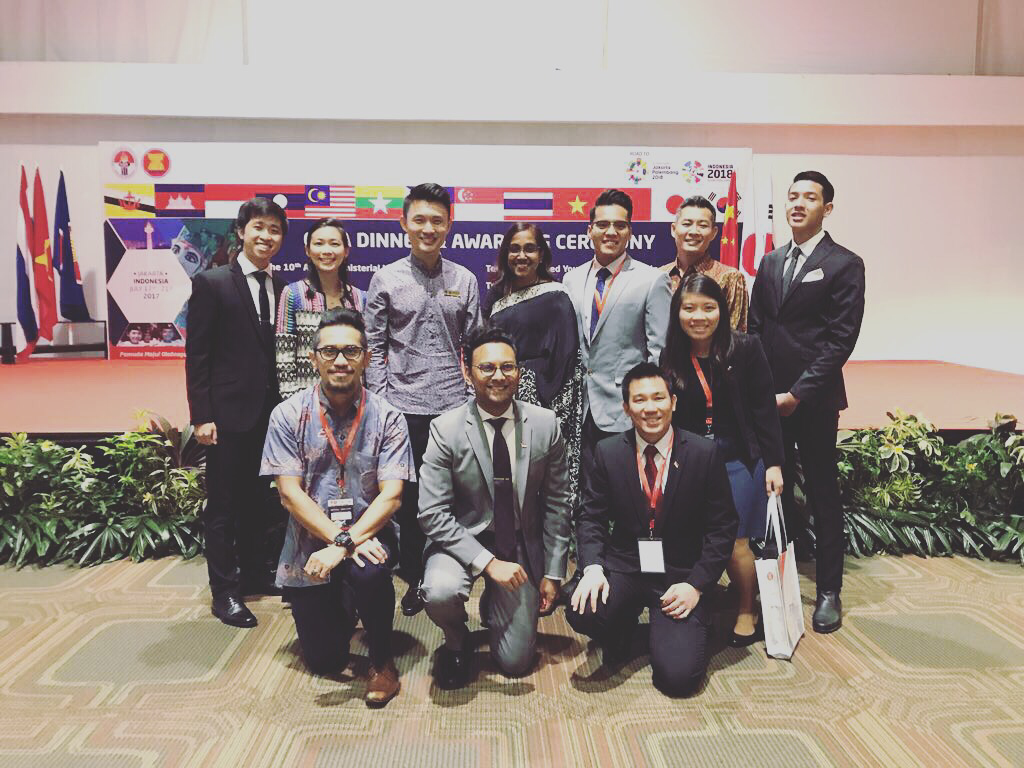




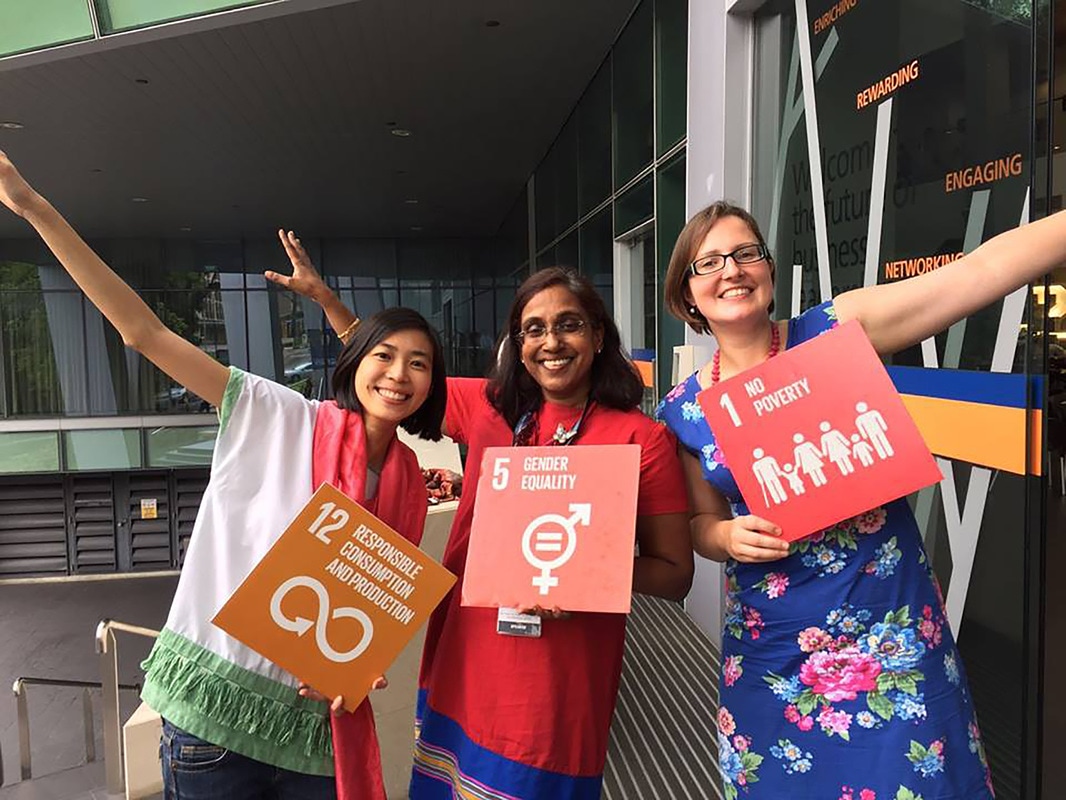
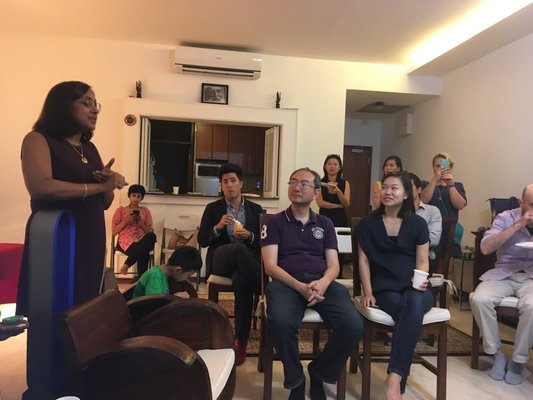
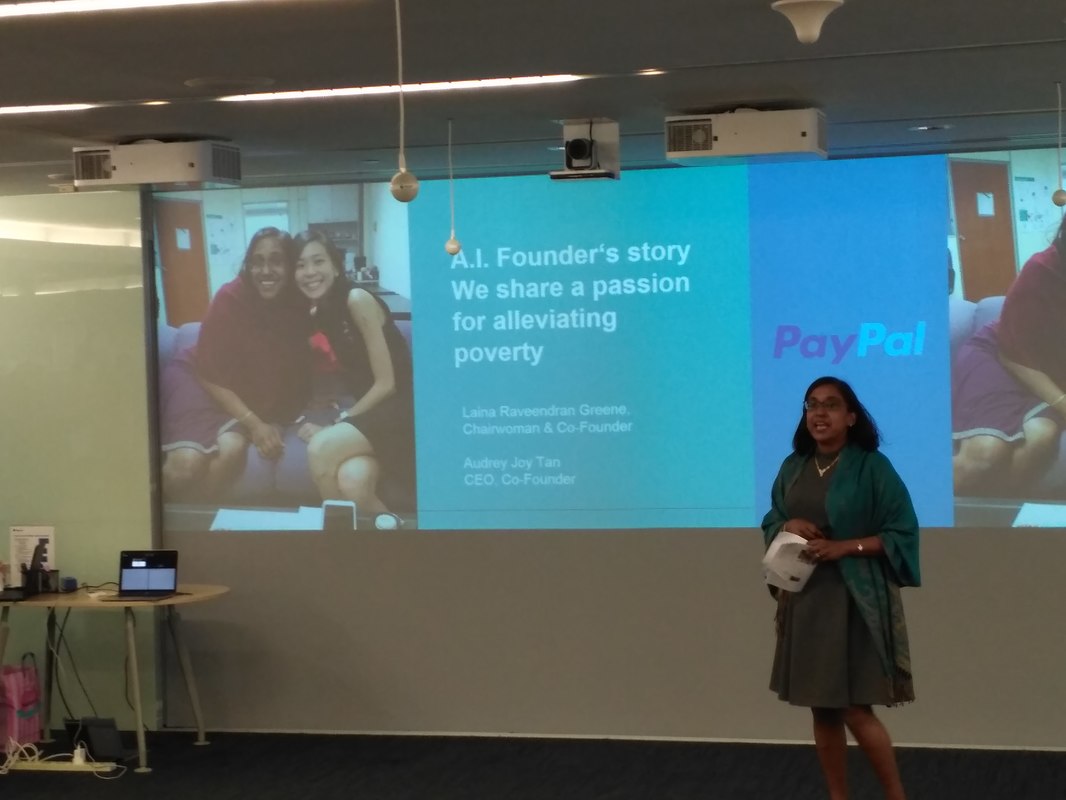
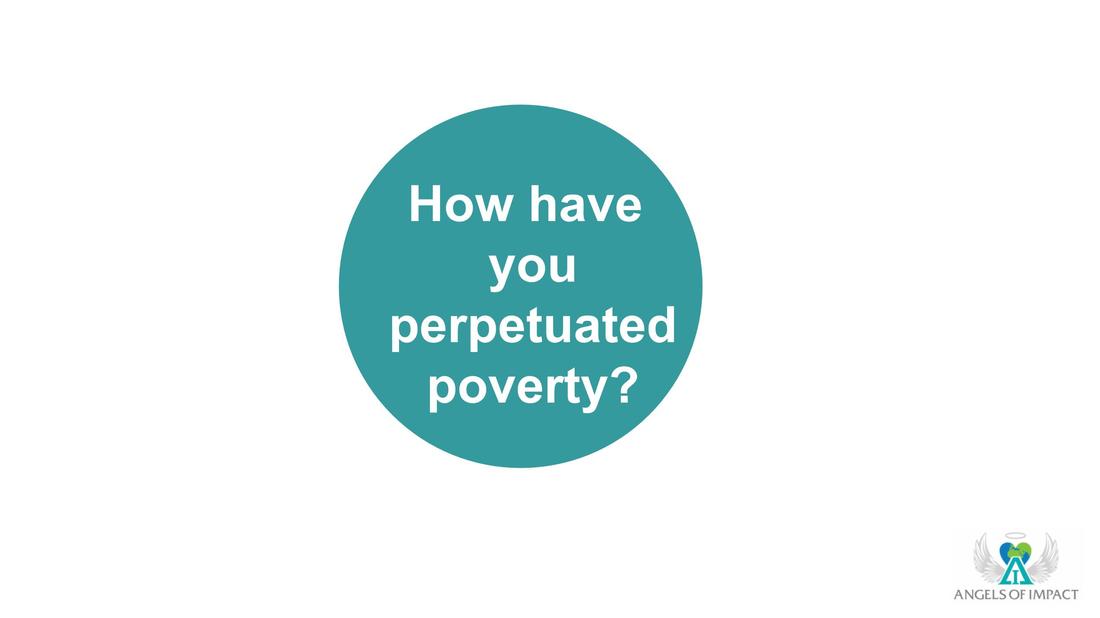
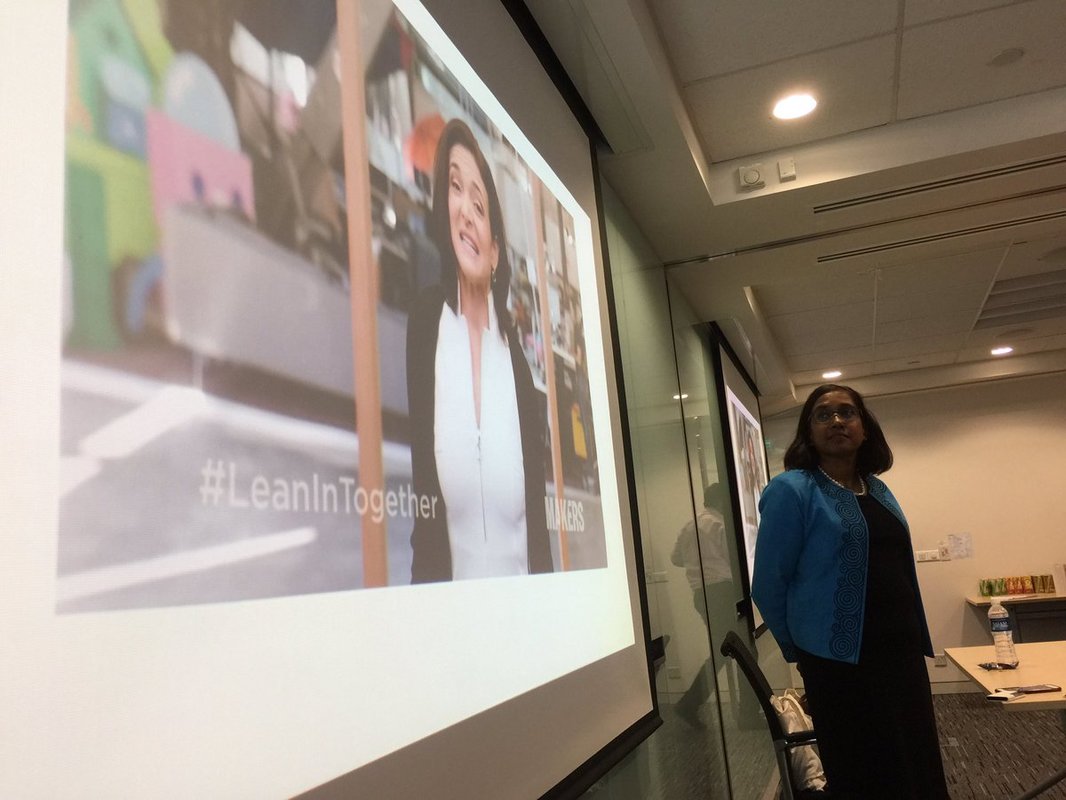

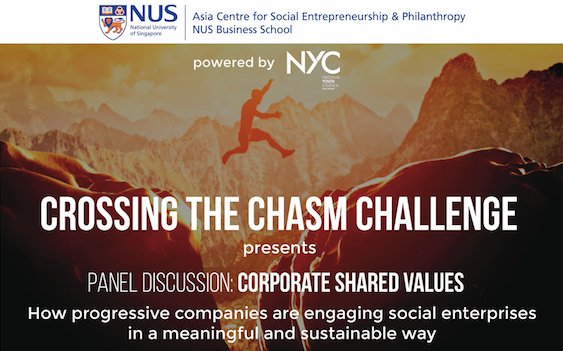
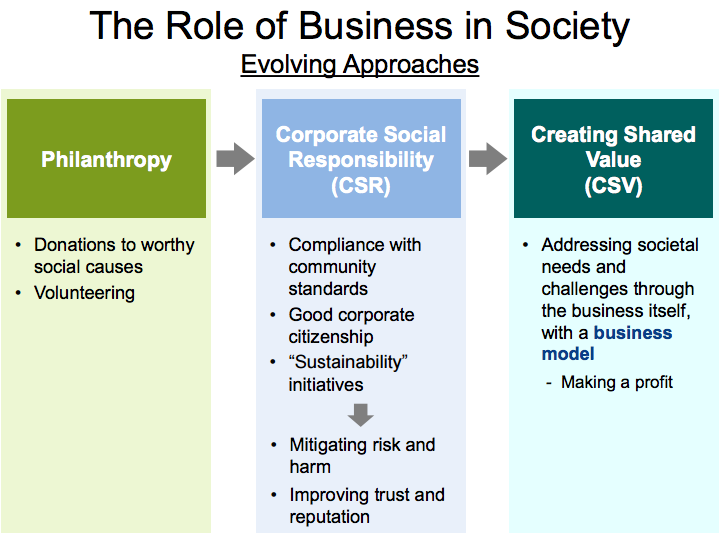
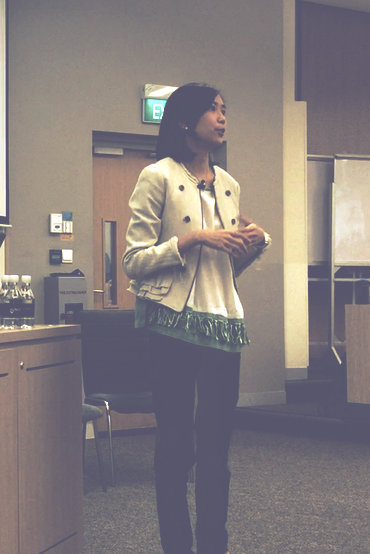
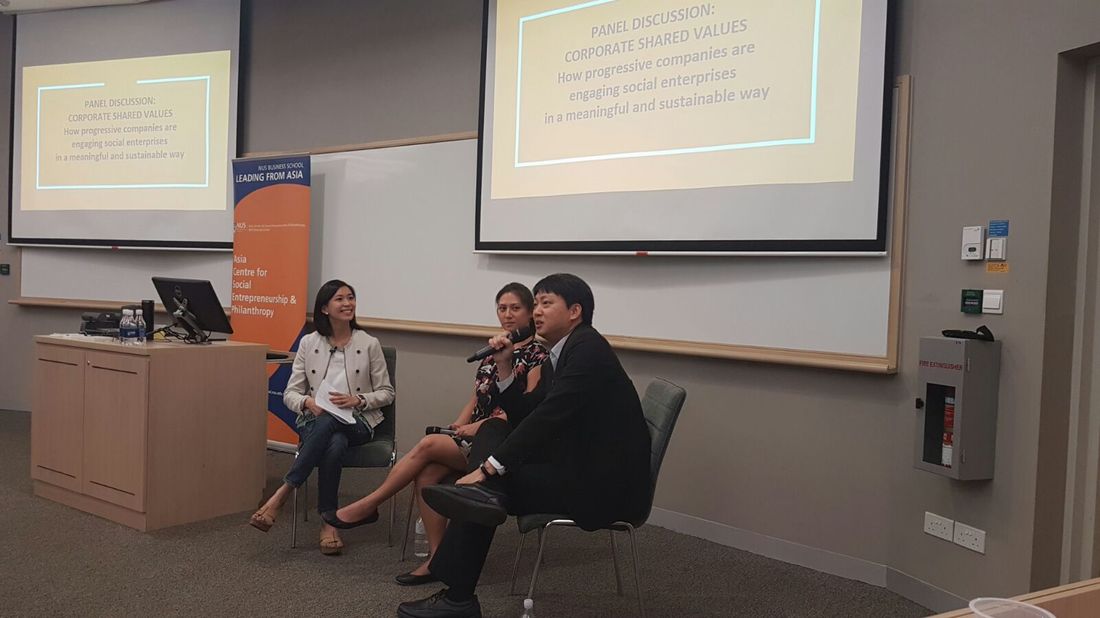
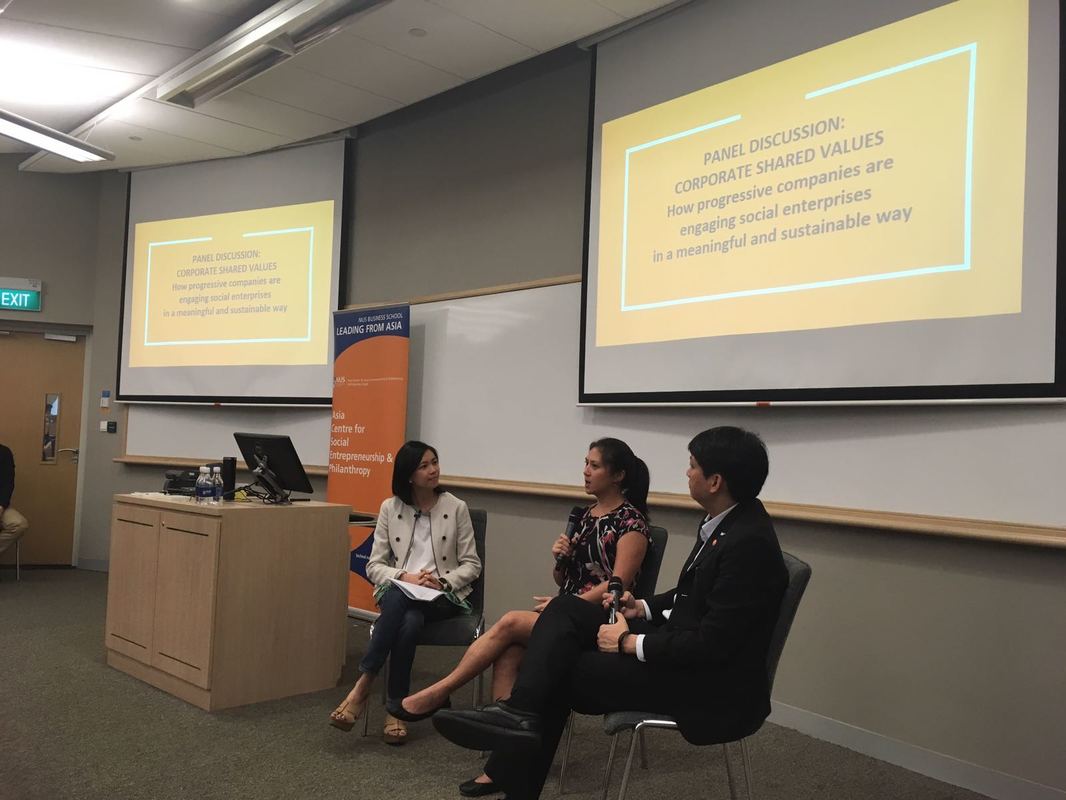
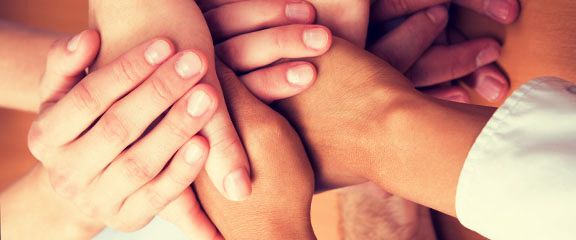
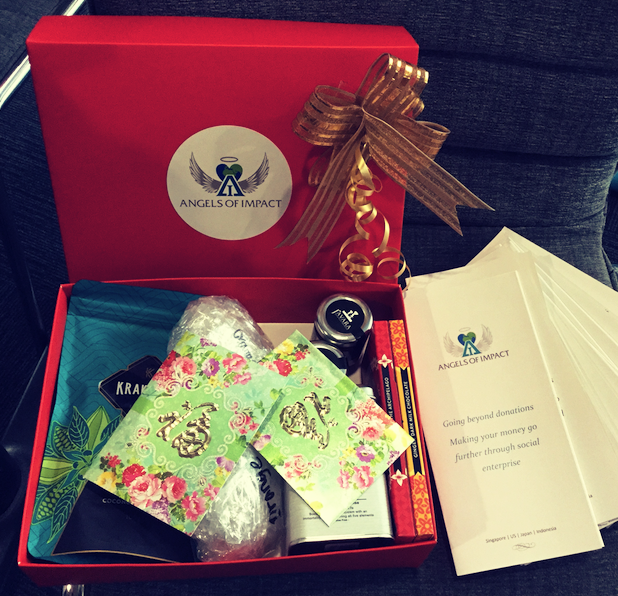
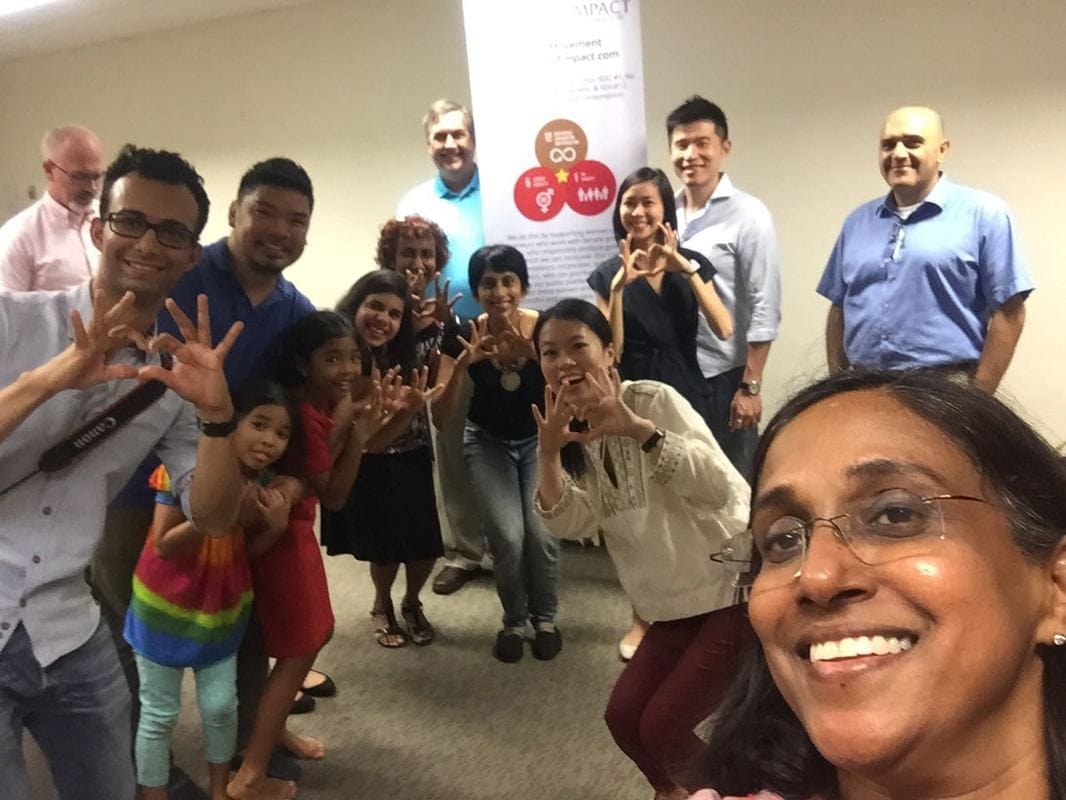
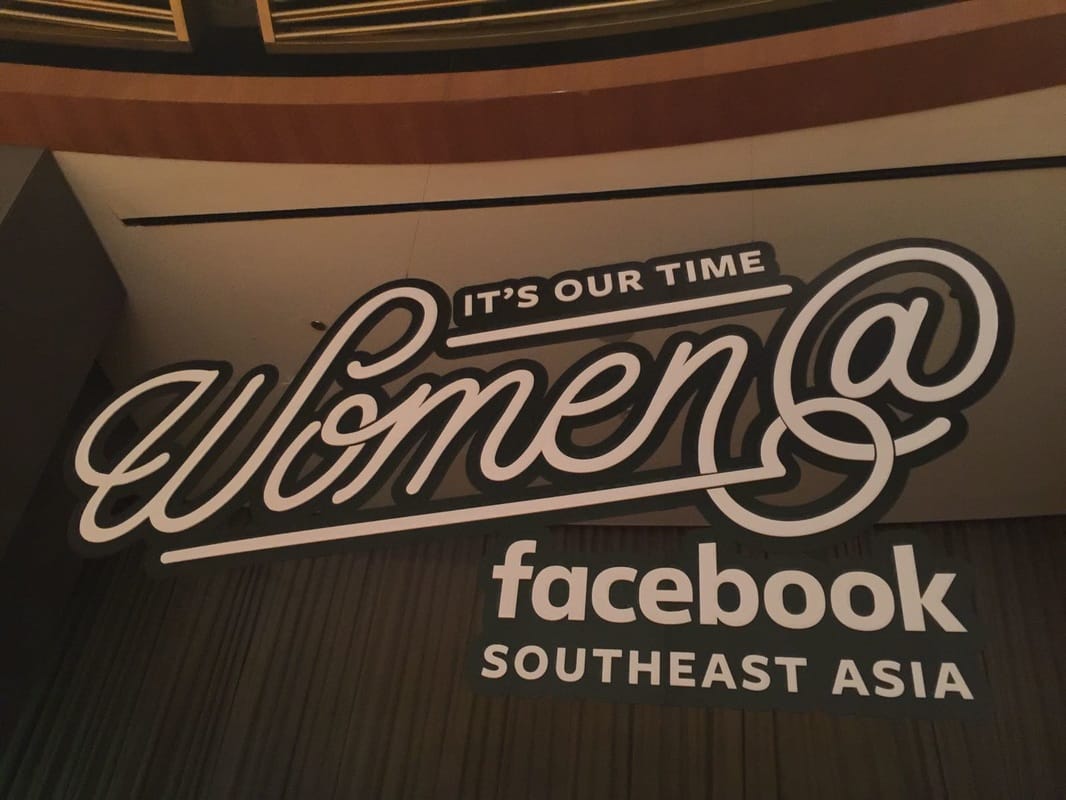
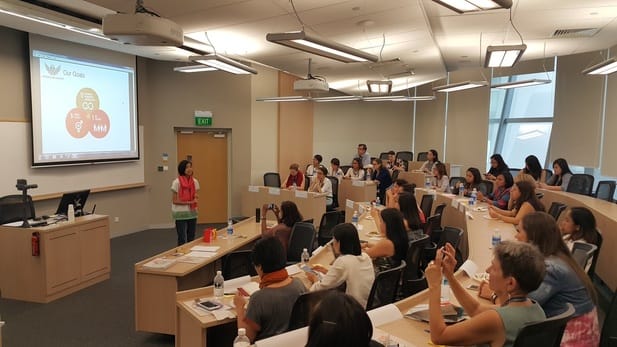
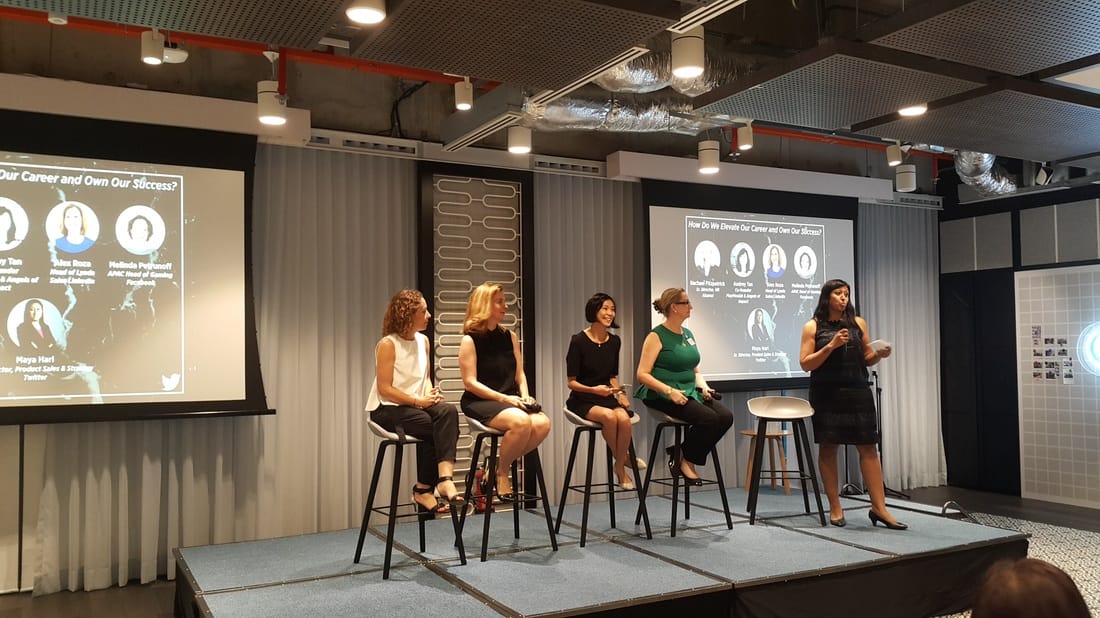

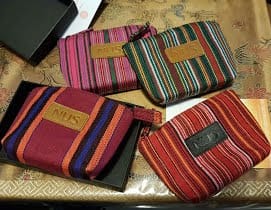
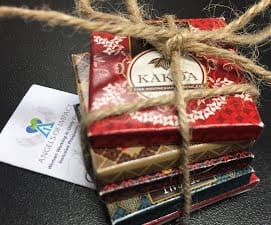
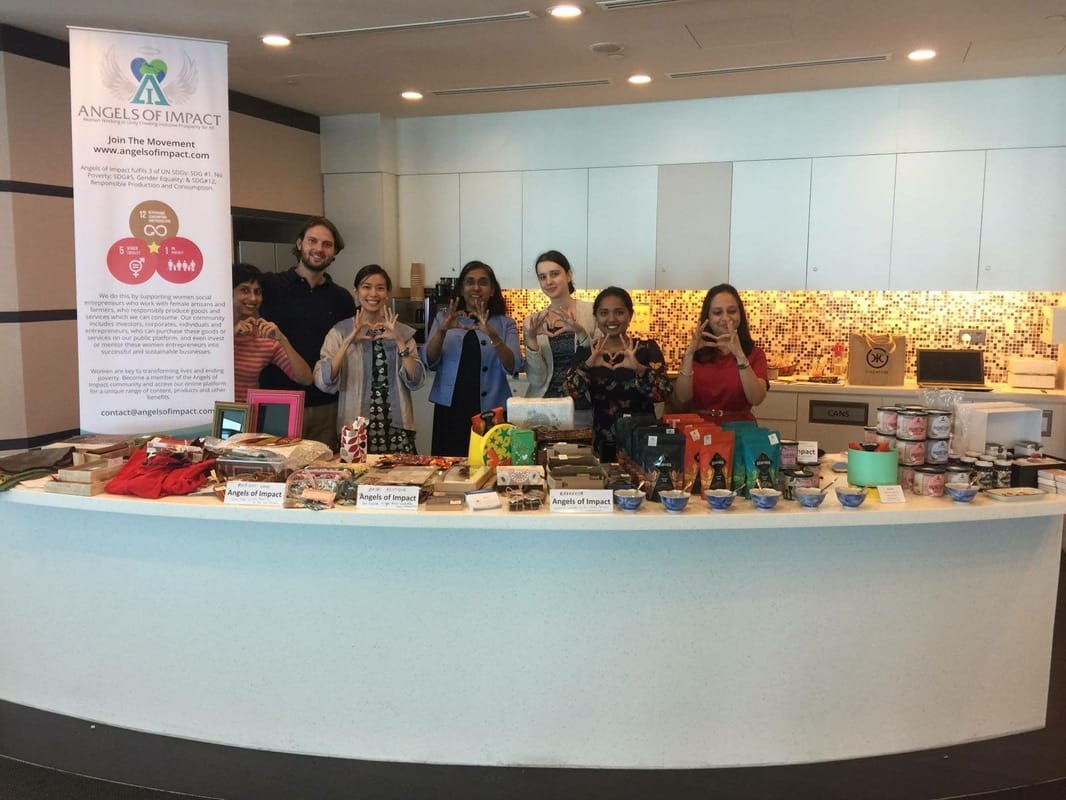
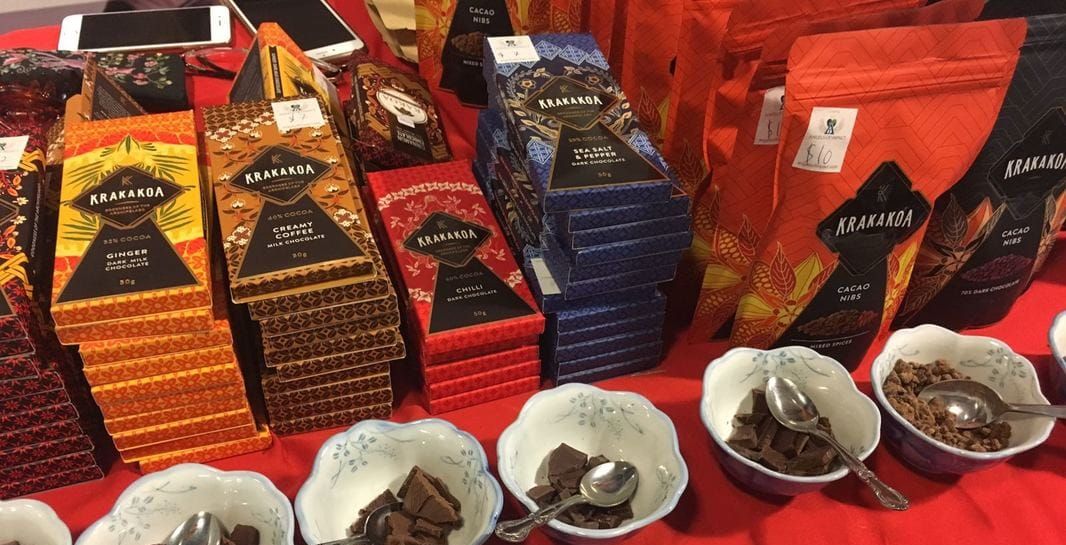
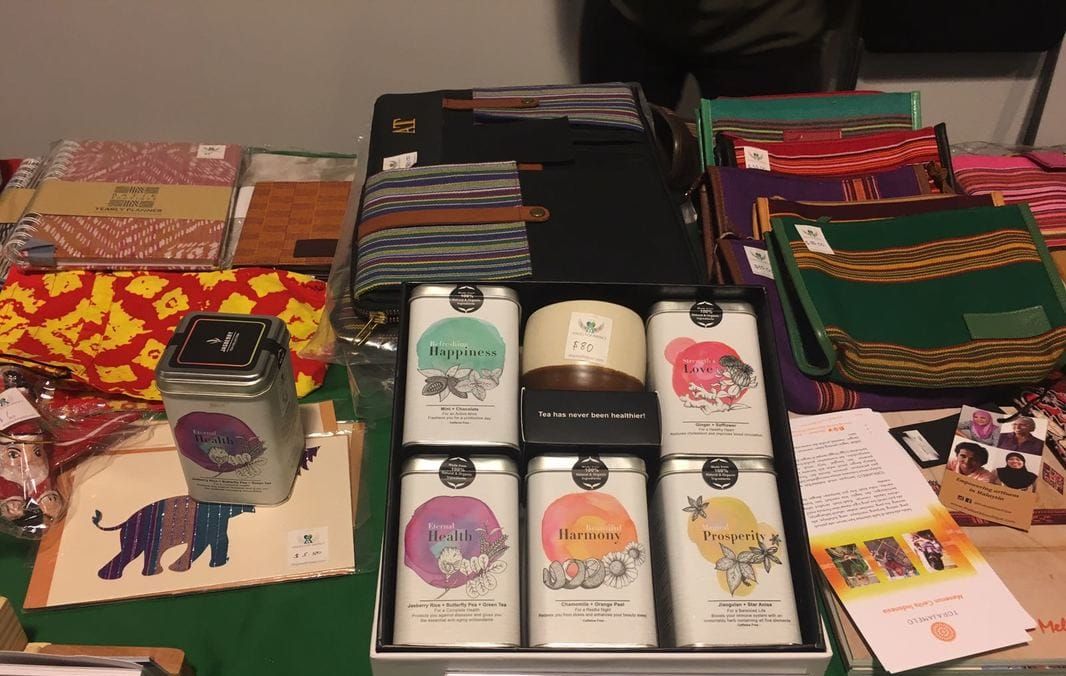
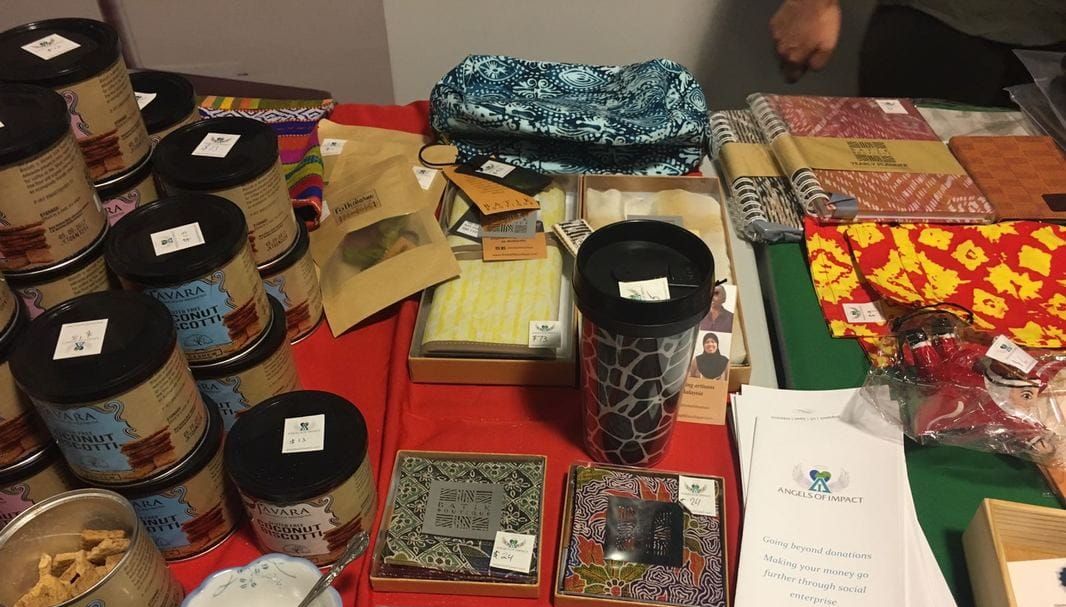
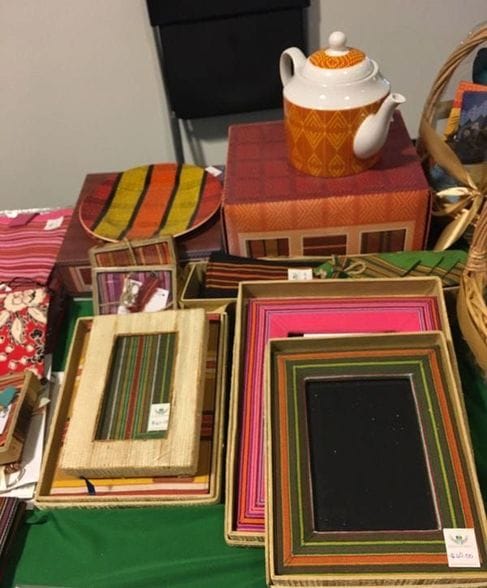
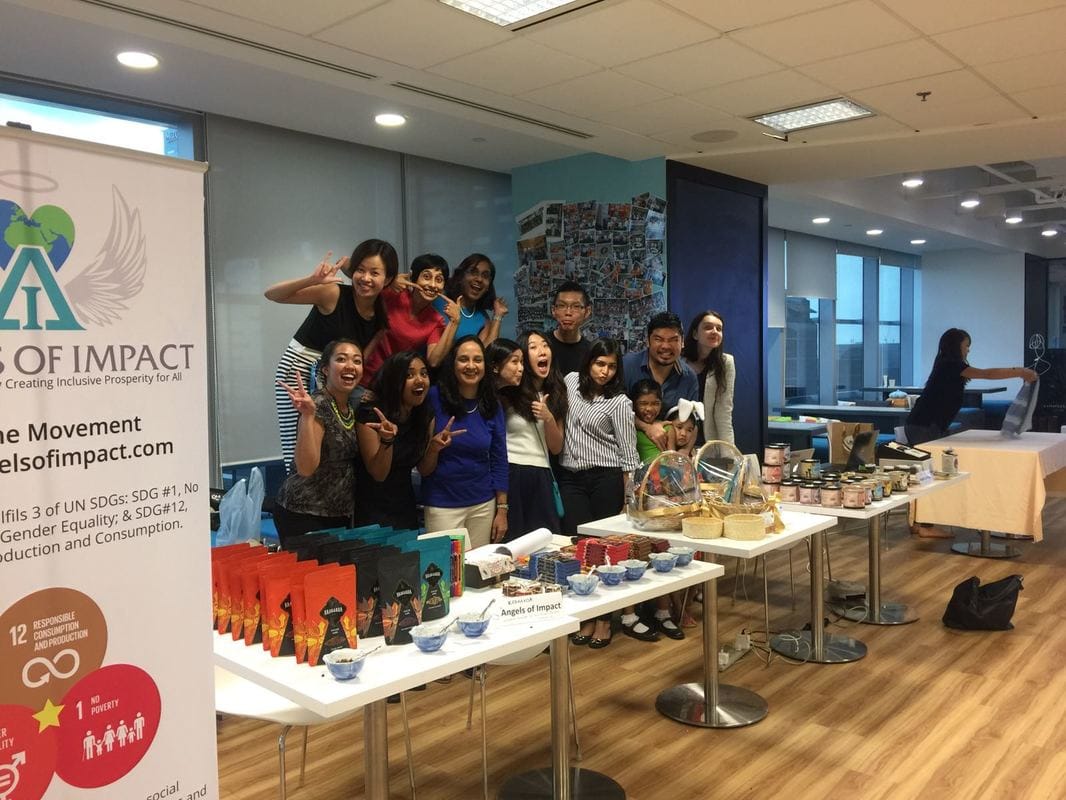
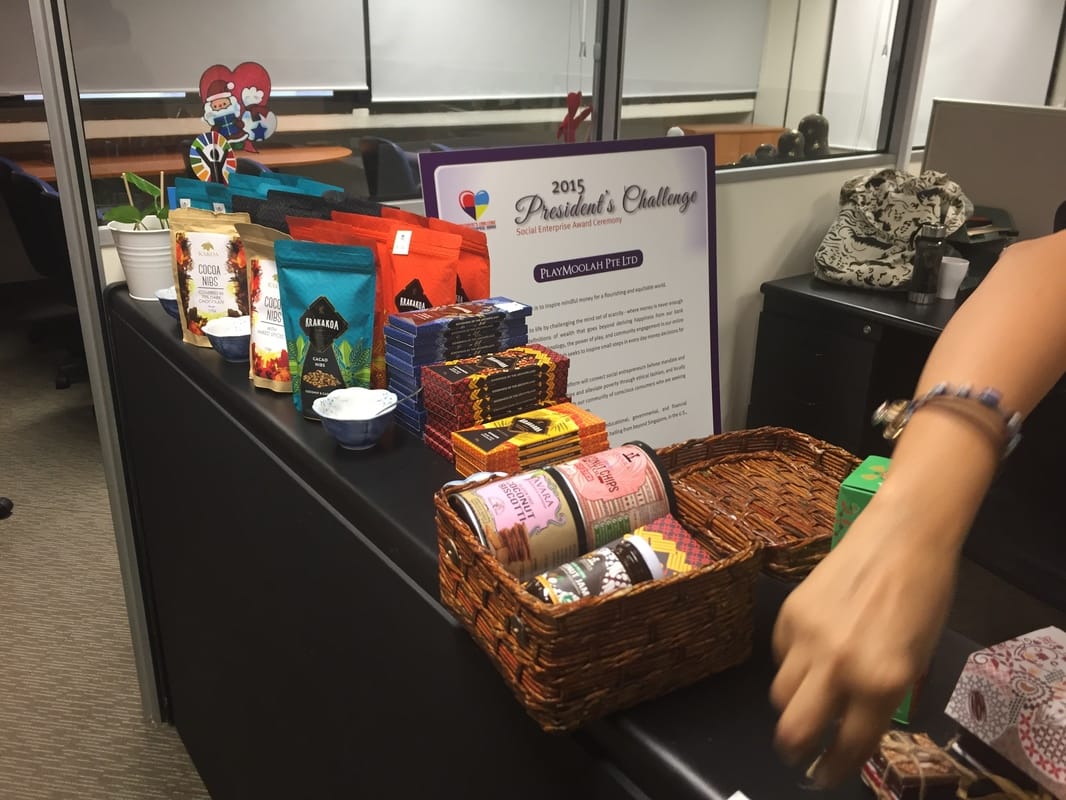
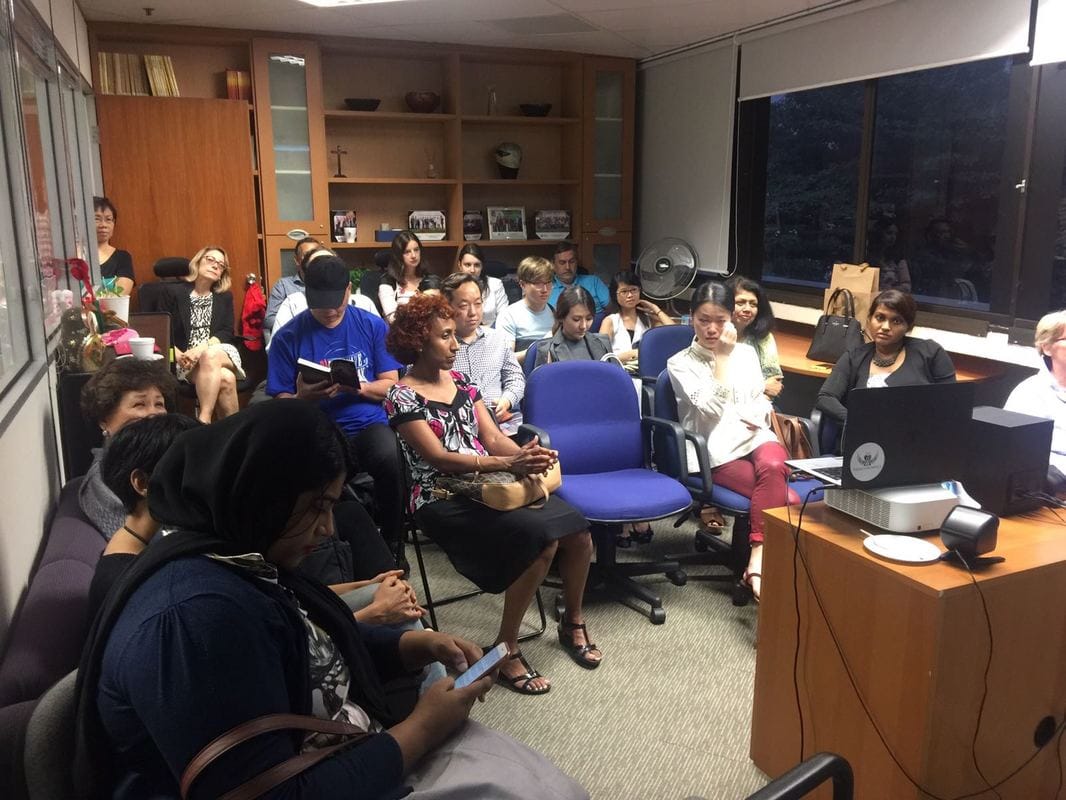
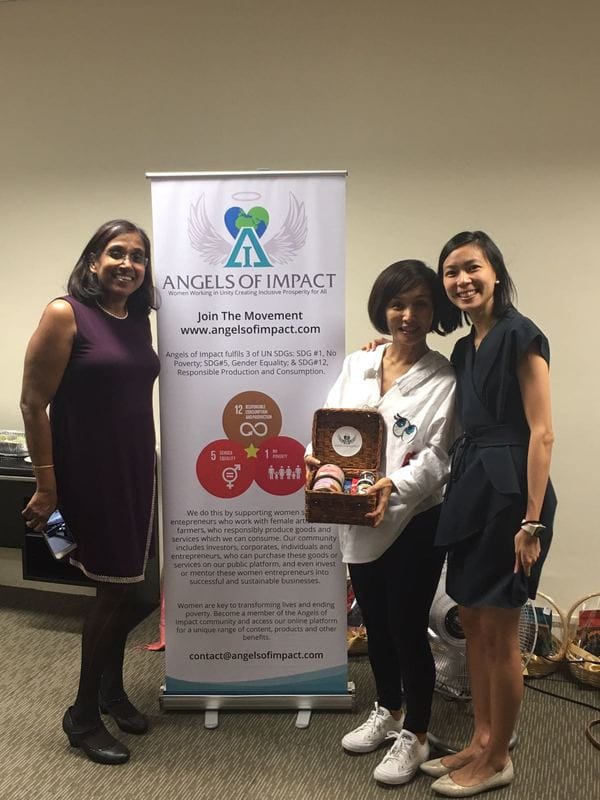
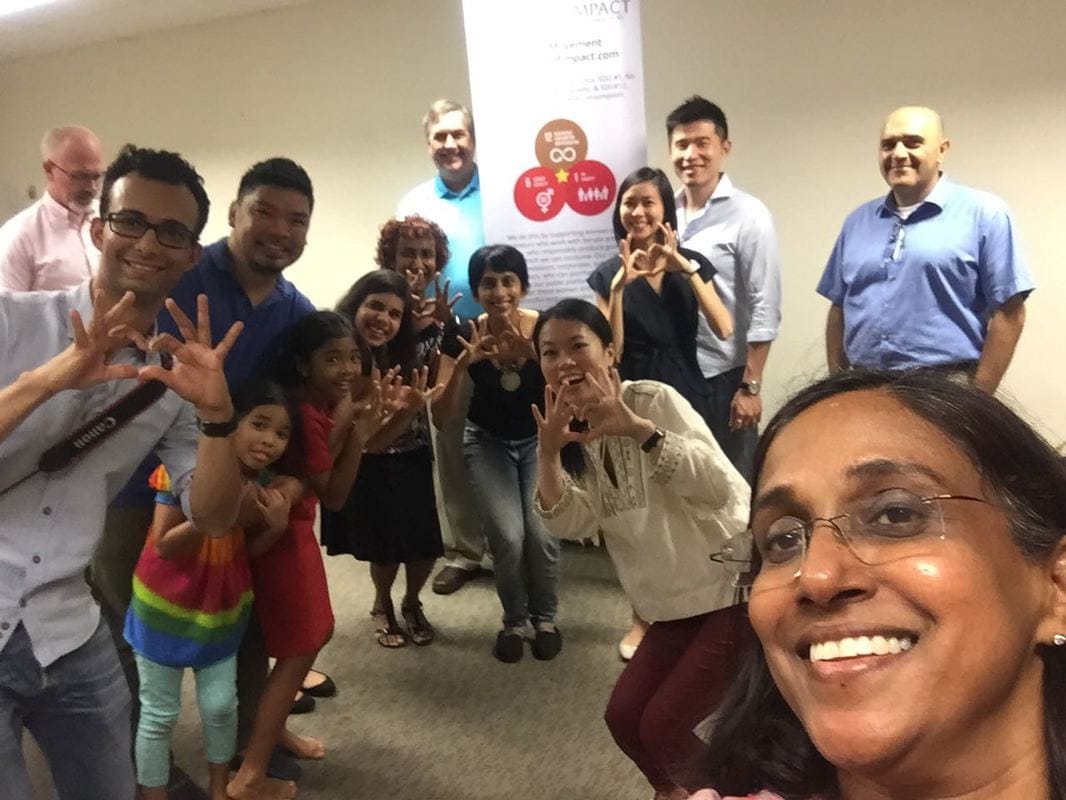
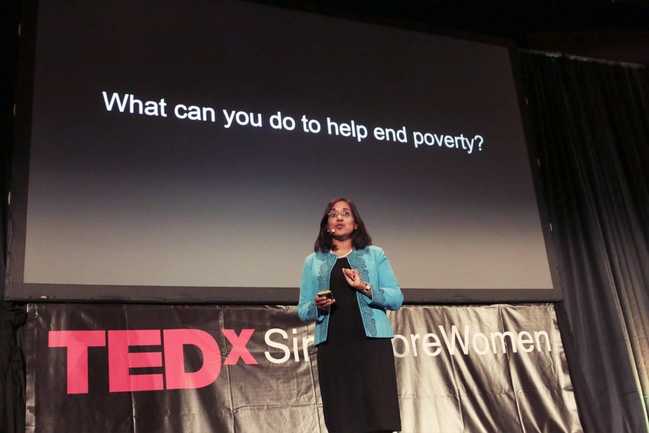
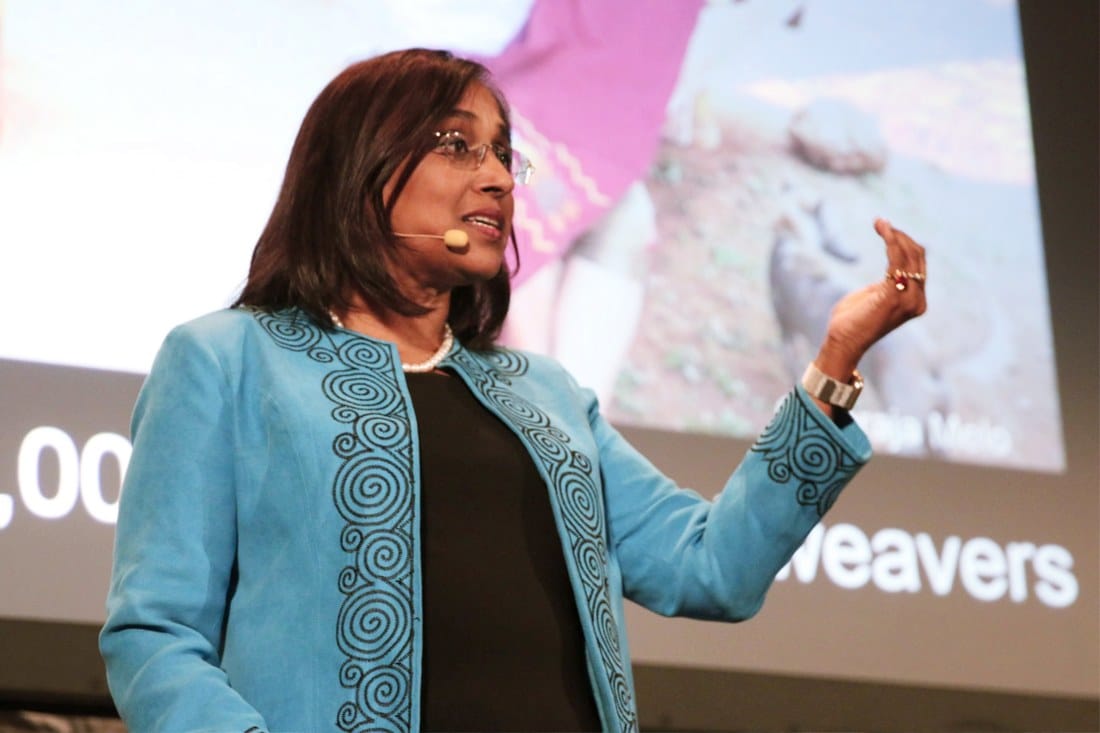
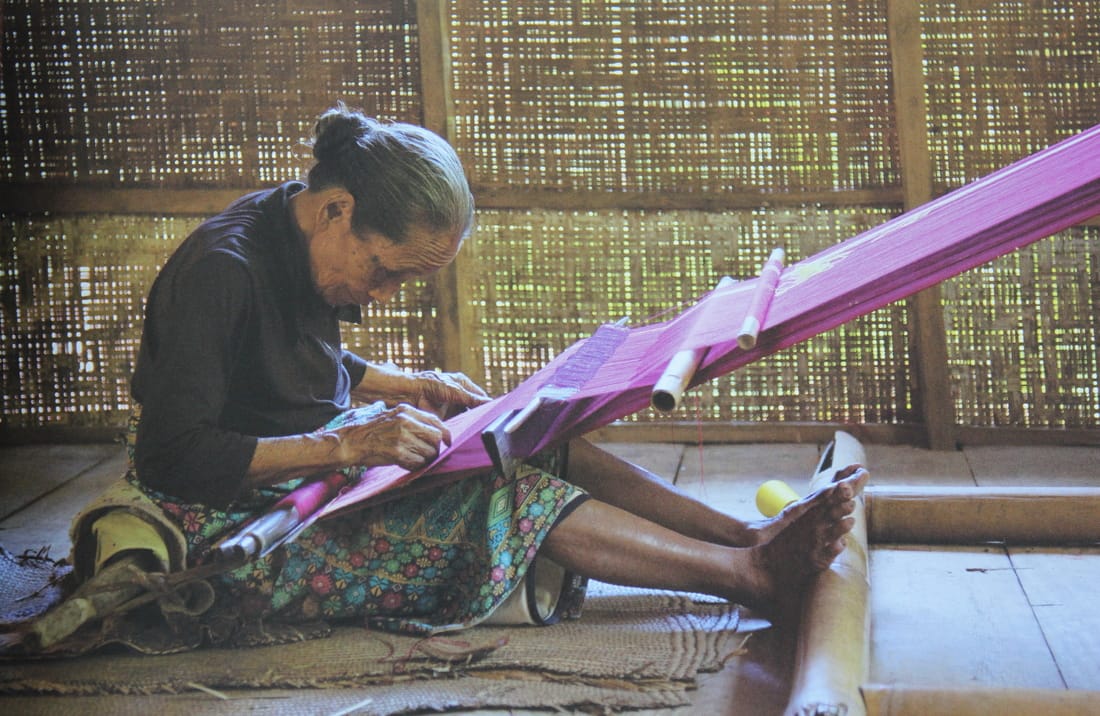
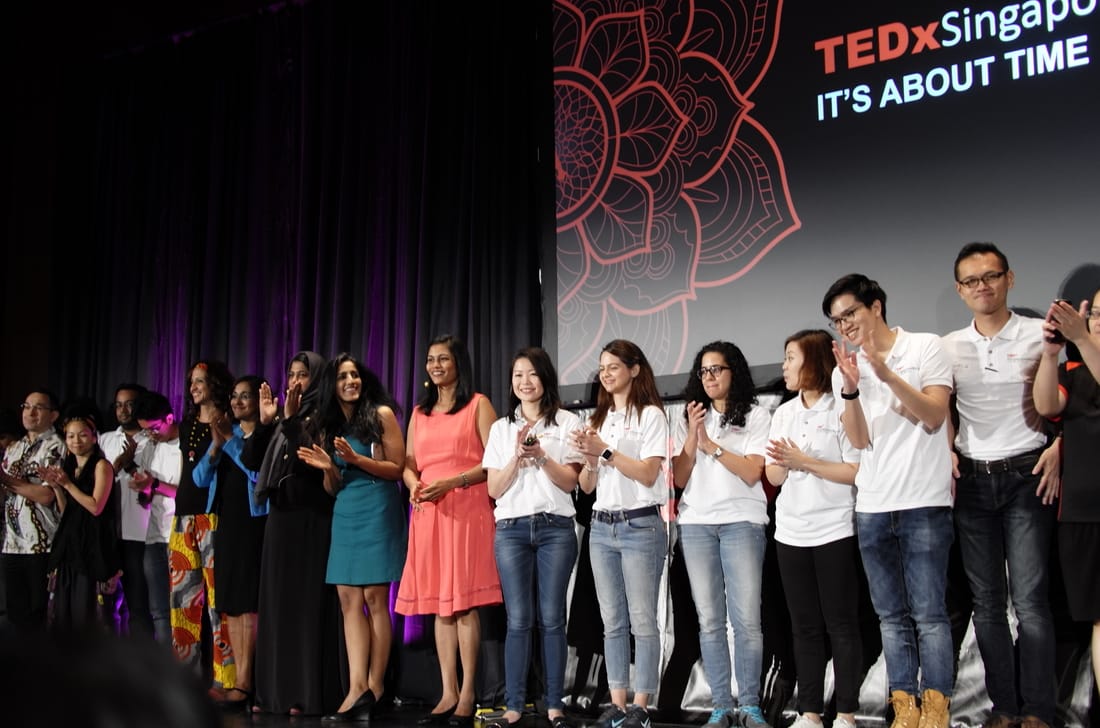
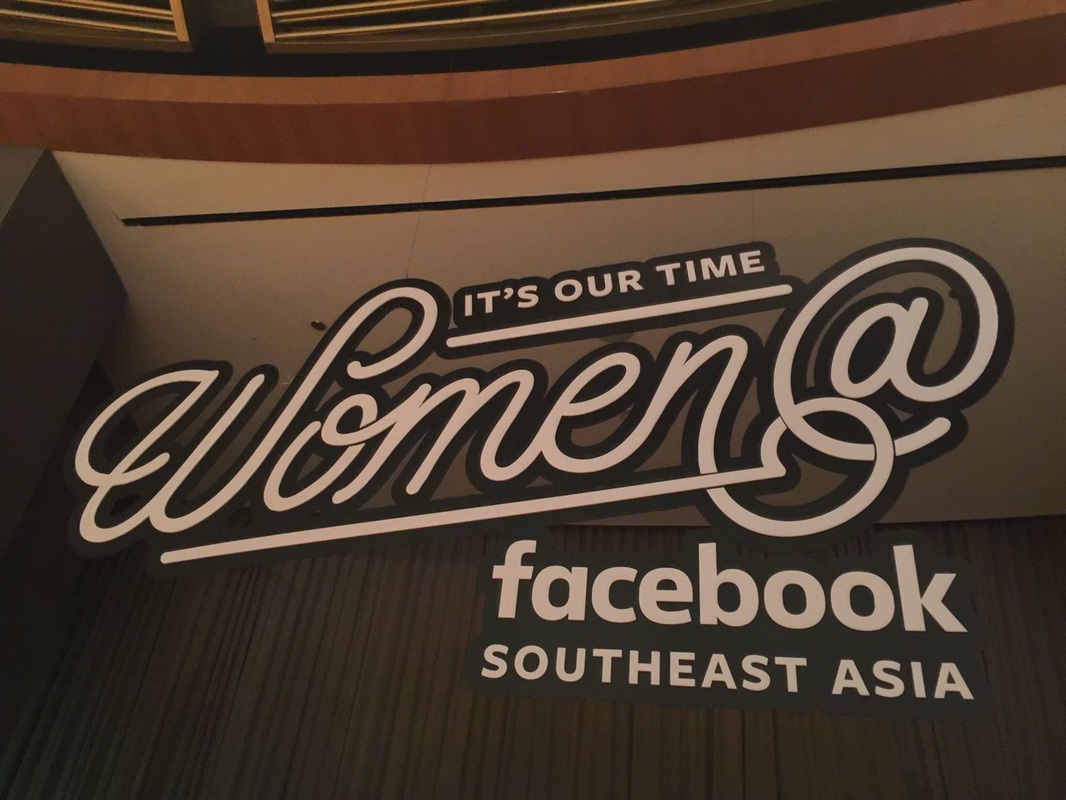
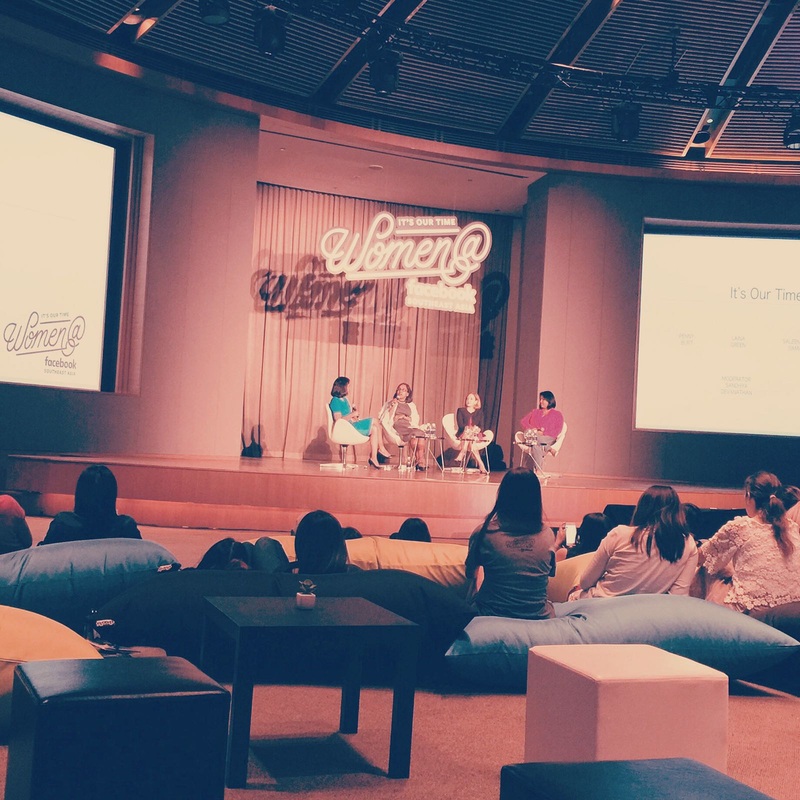
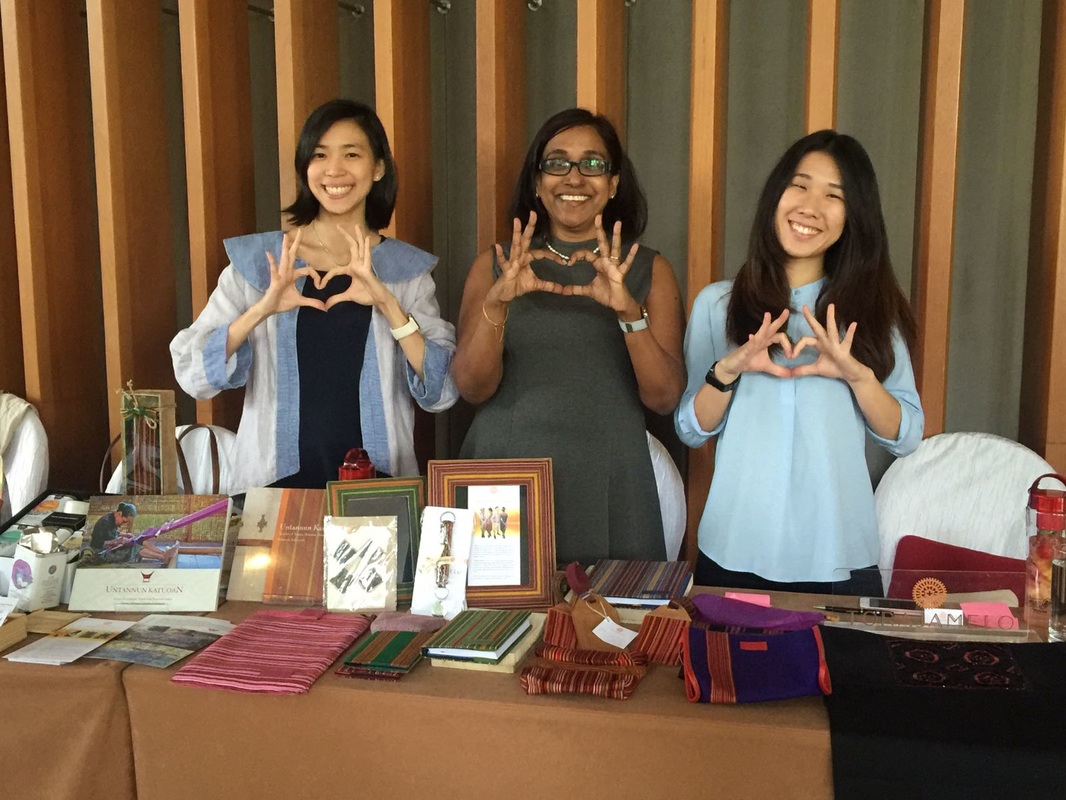
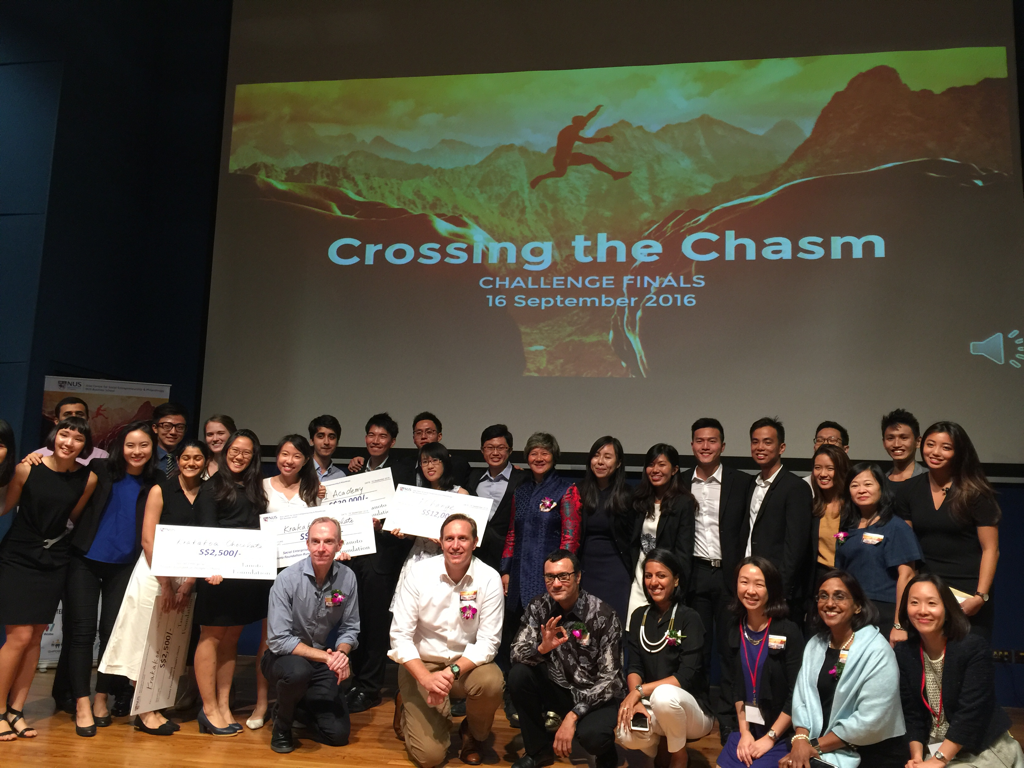
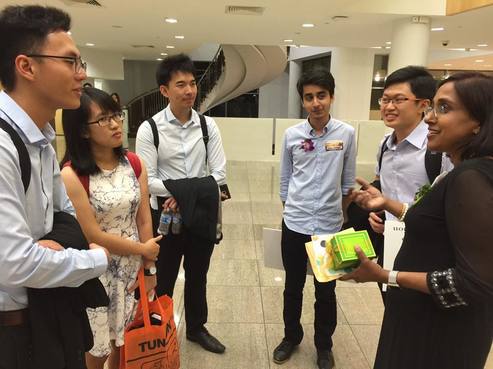
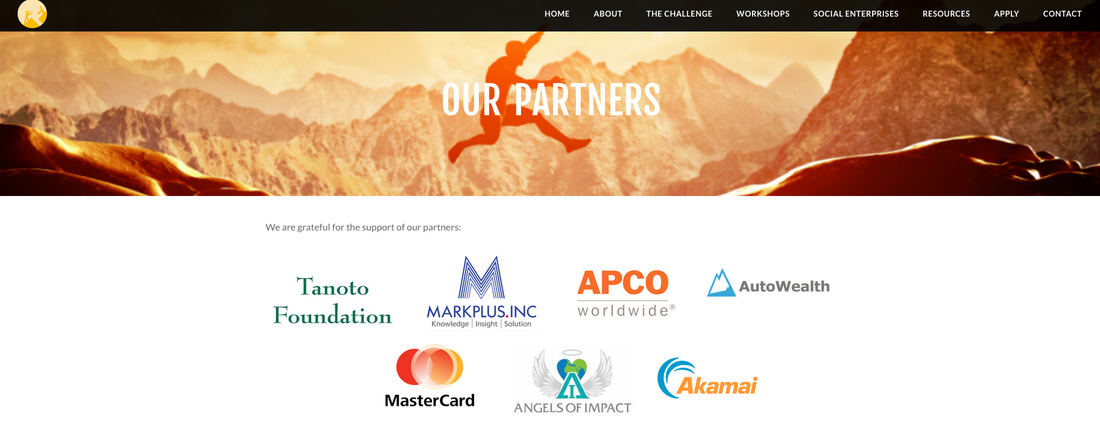
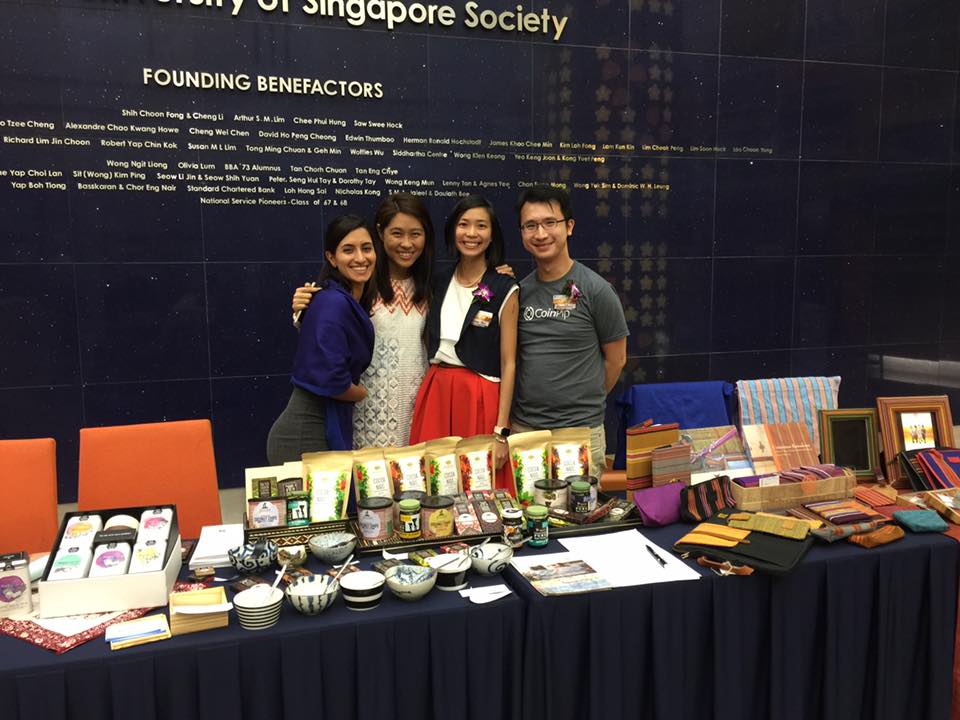
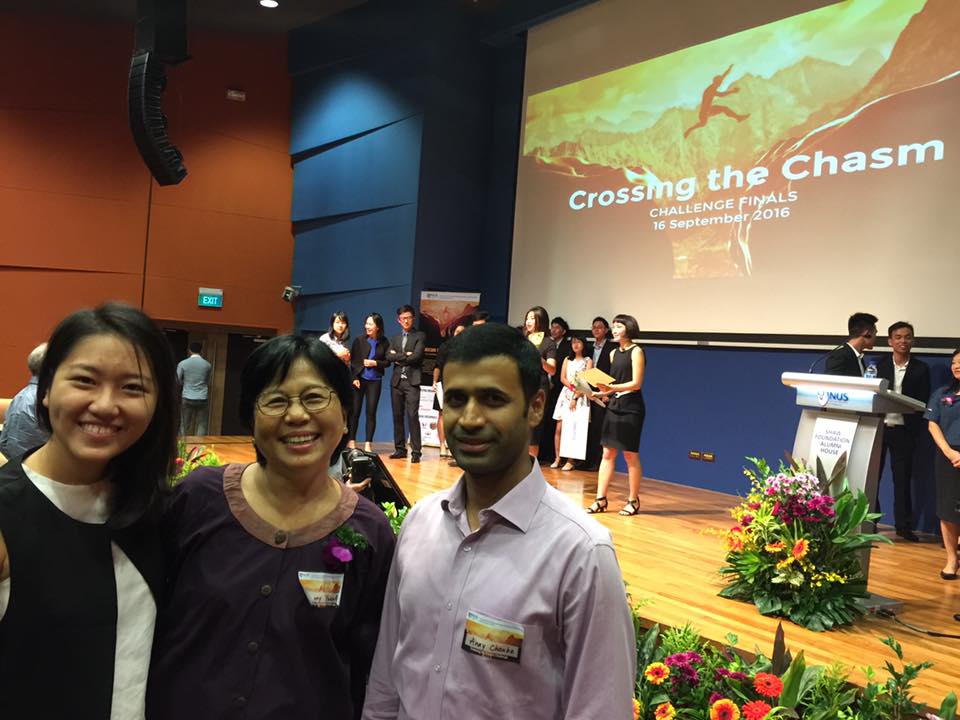
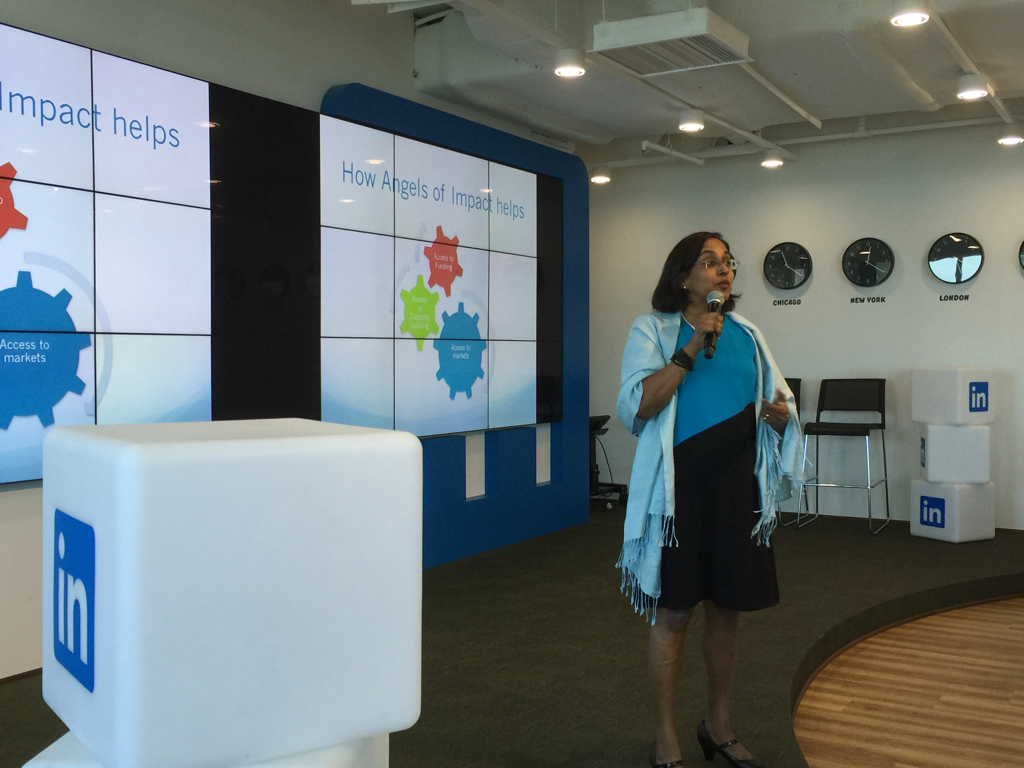
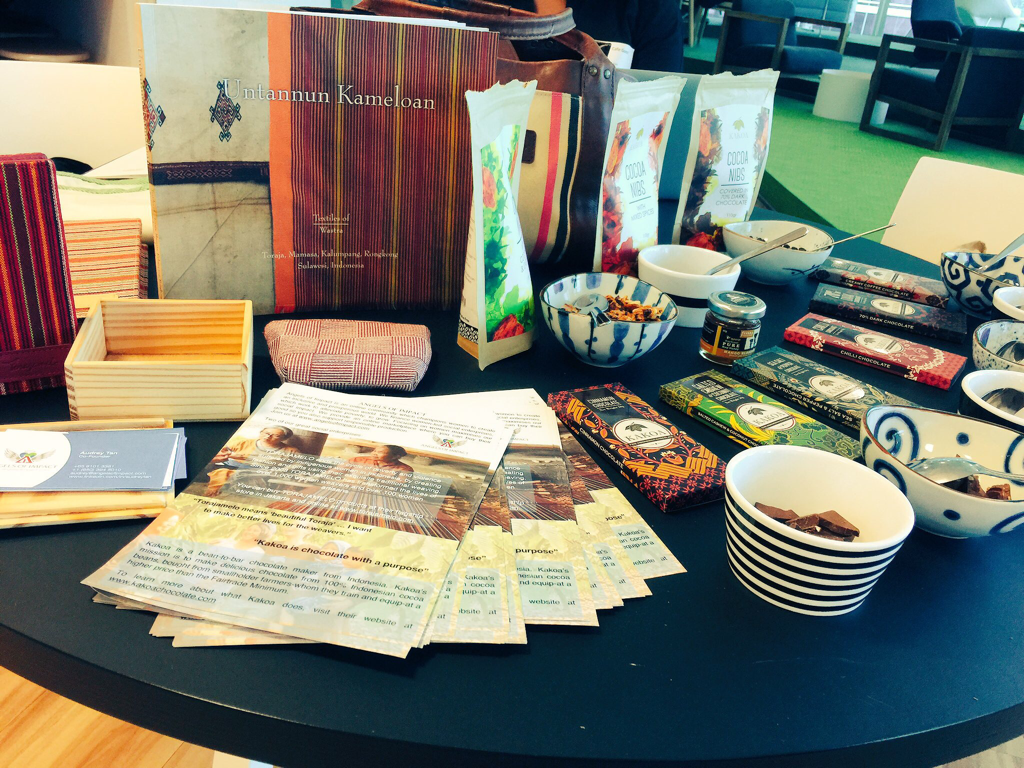
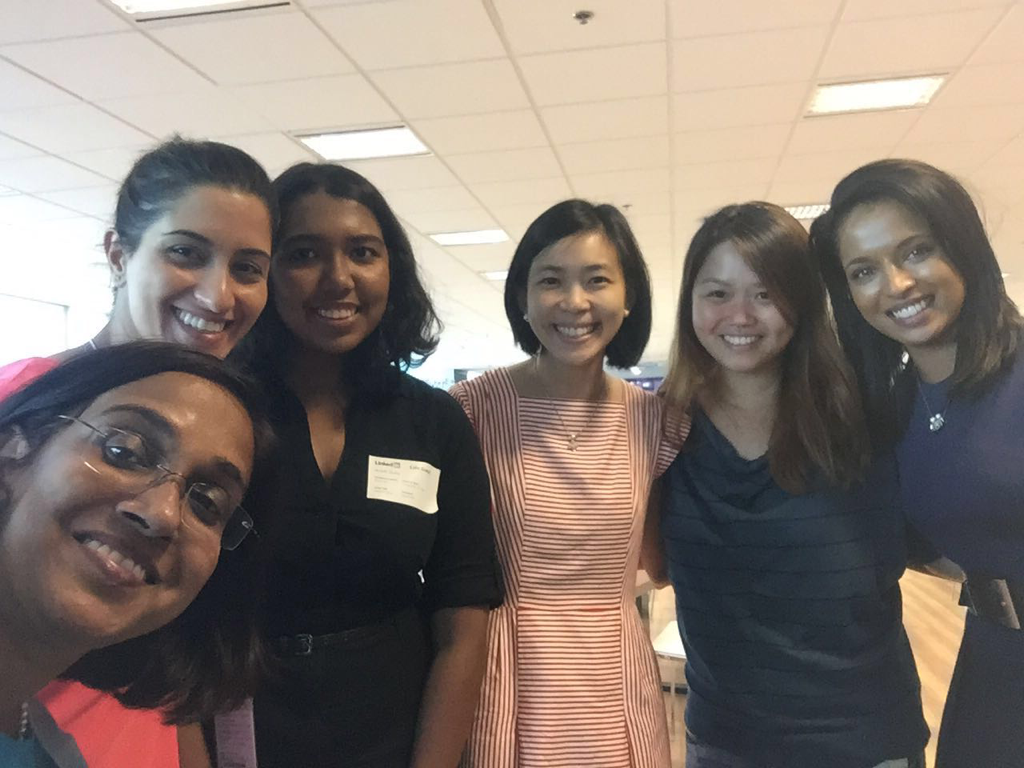
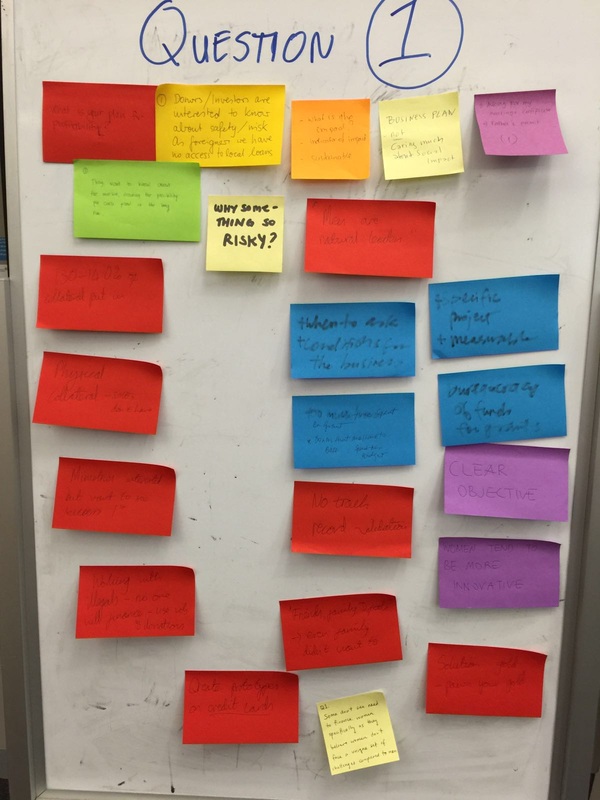
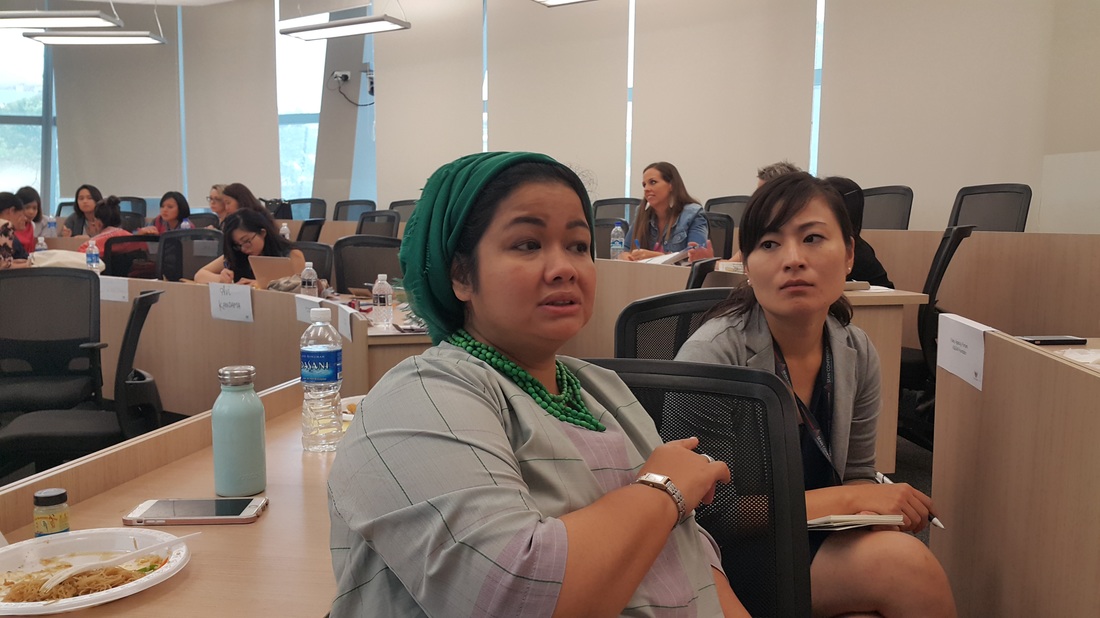
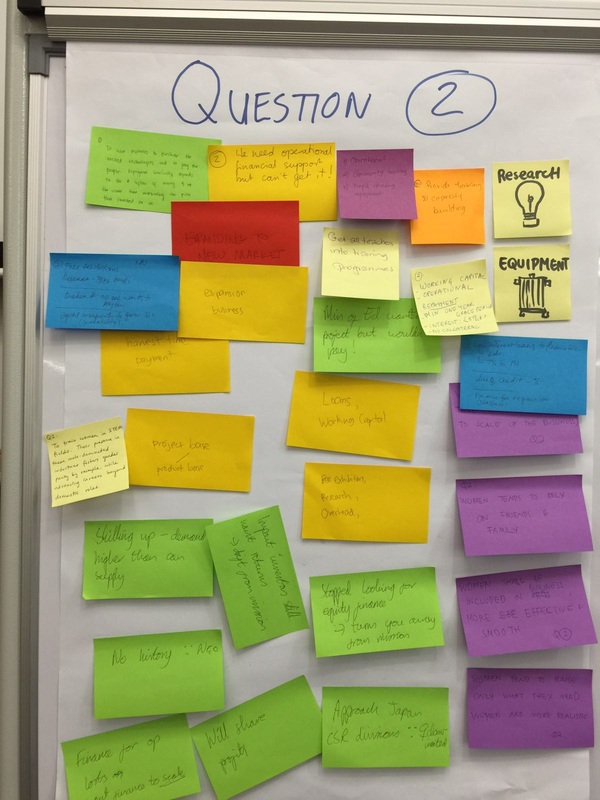
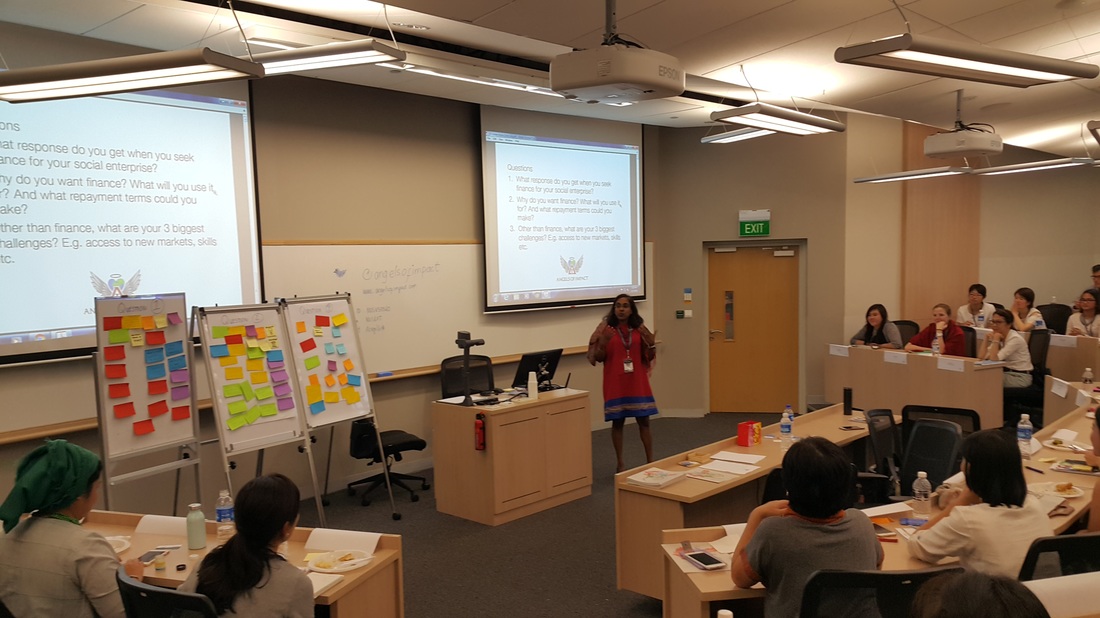
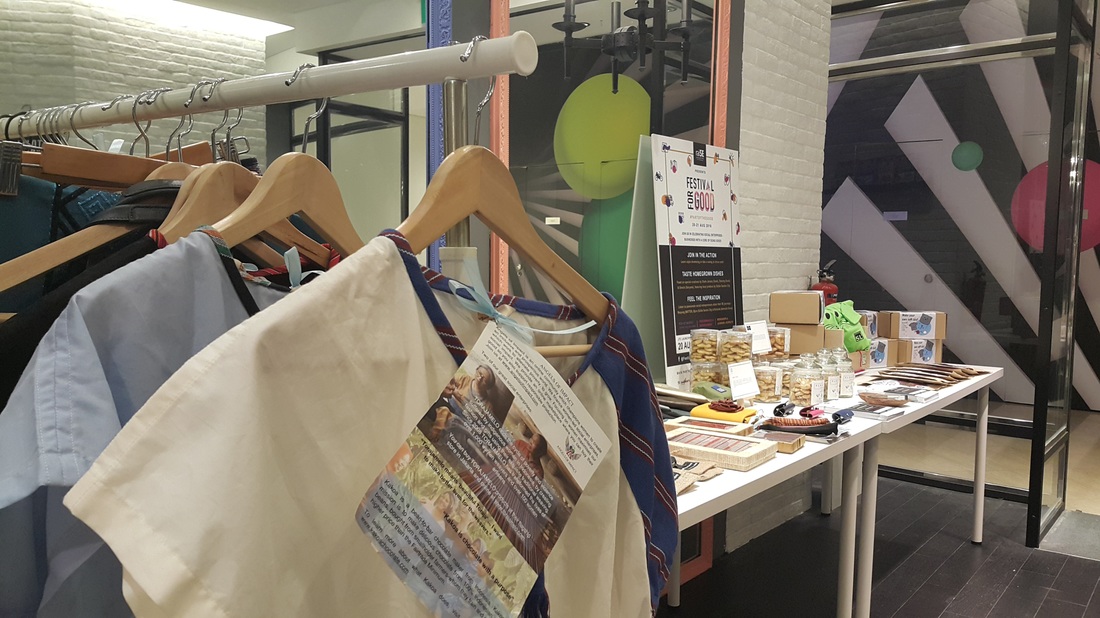
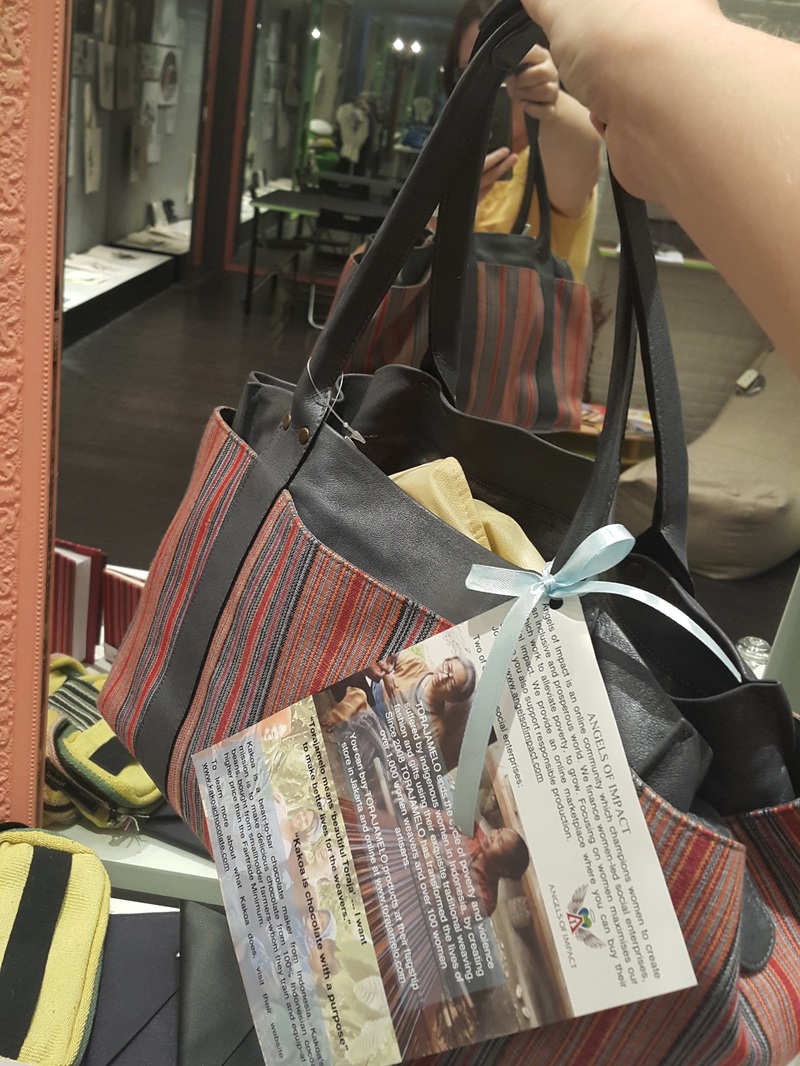
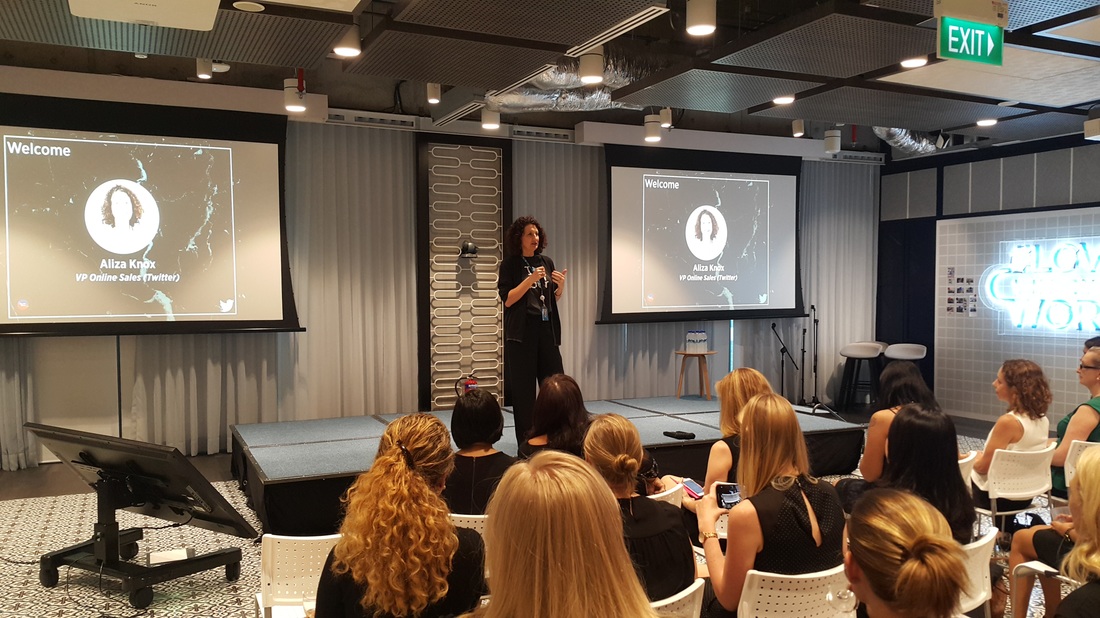
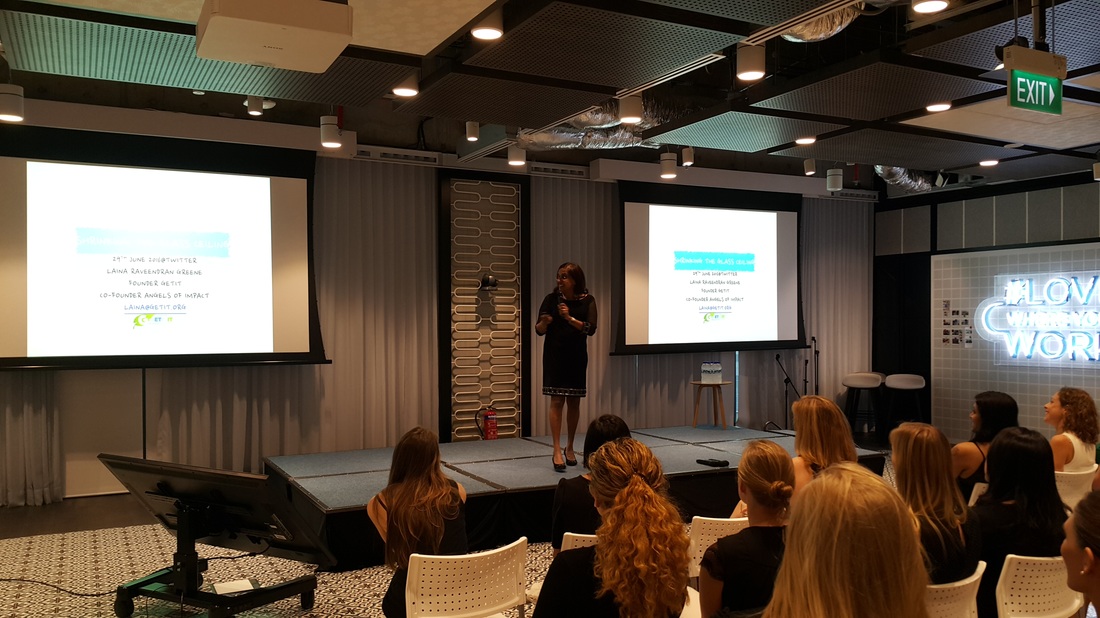
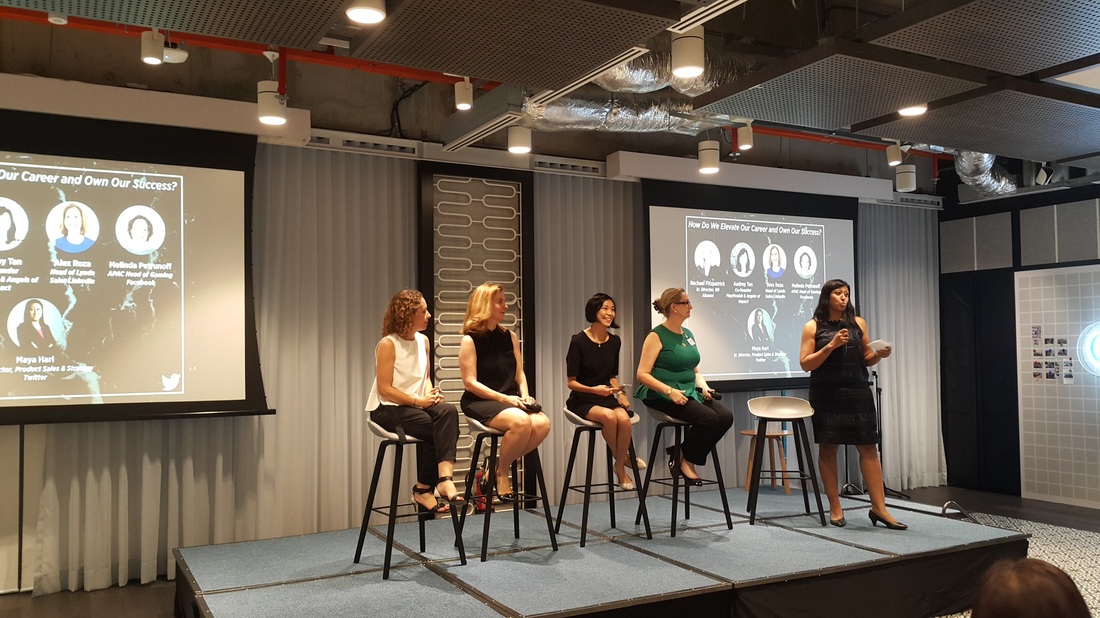
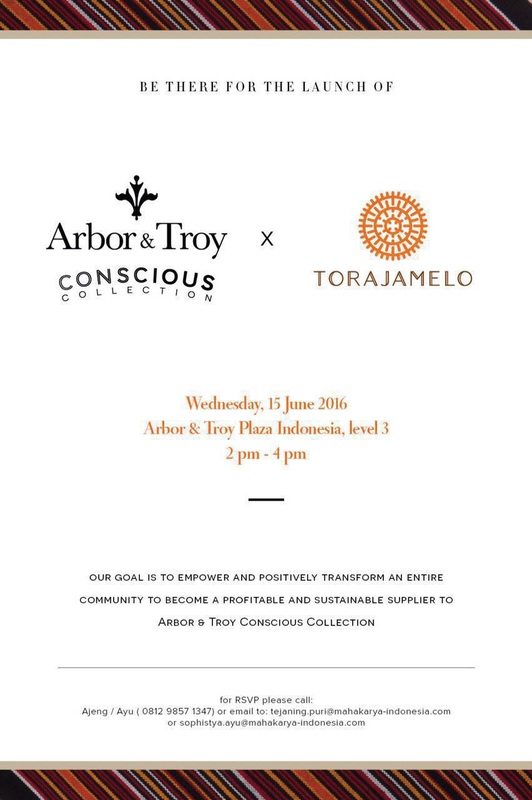
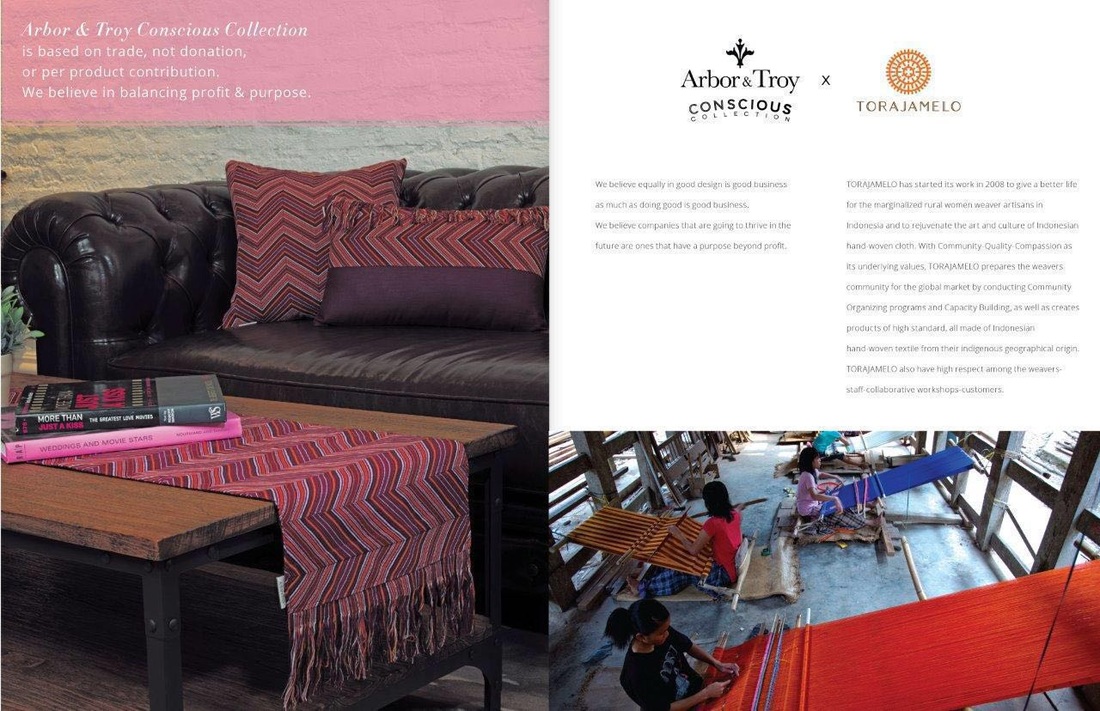
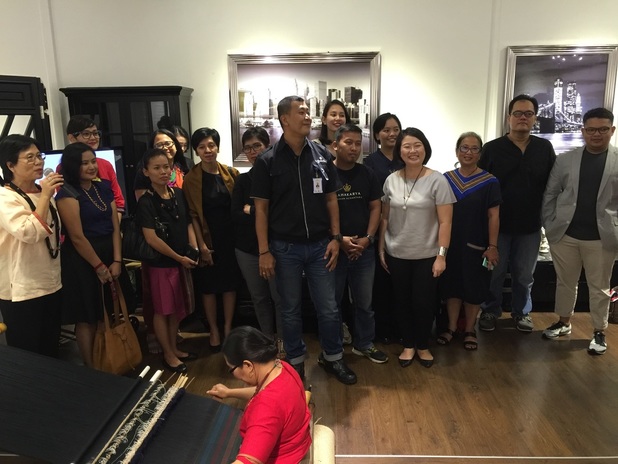
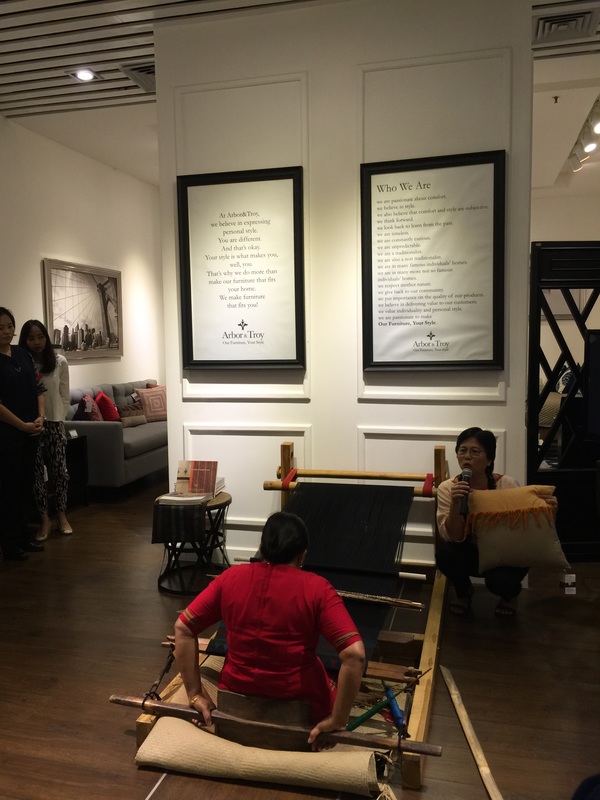
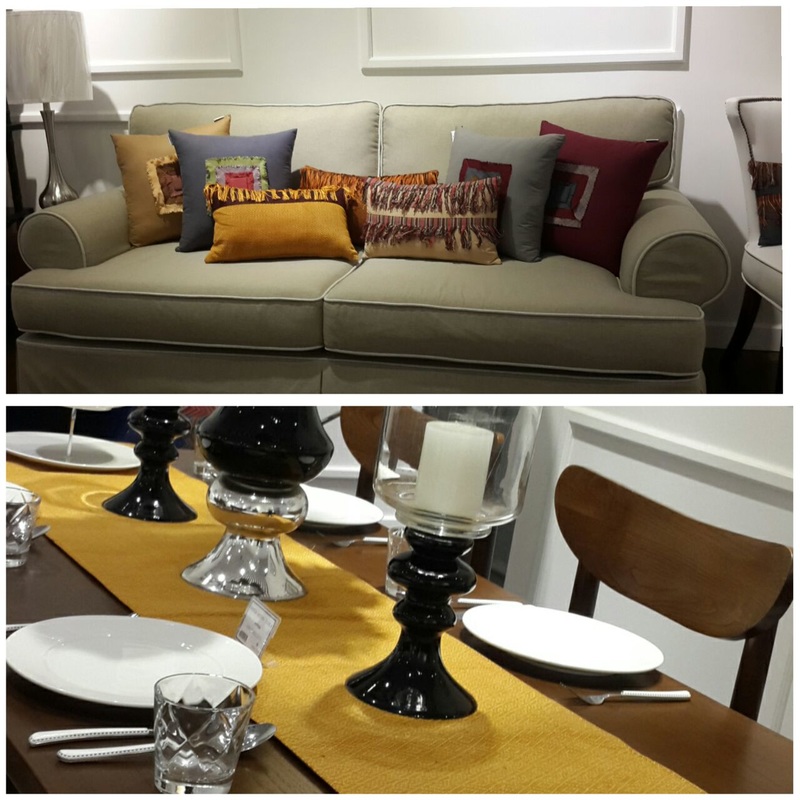
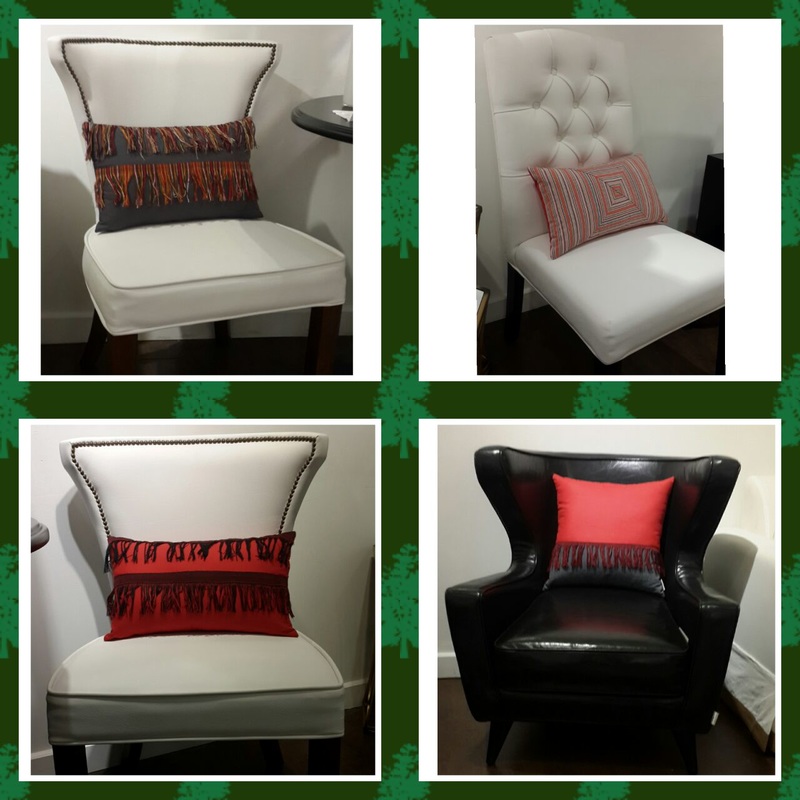
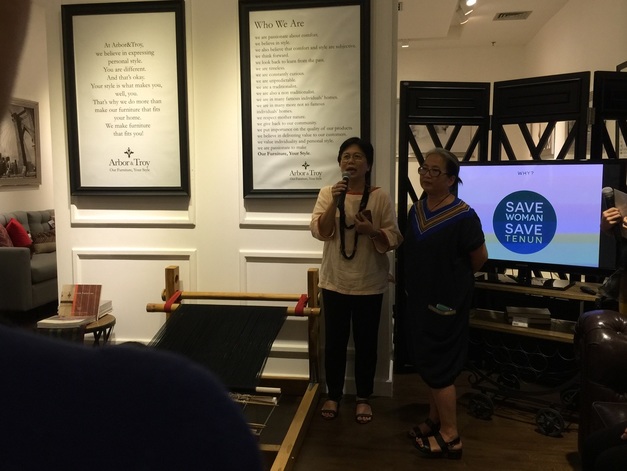
 RSS Feed
RSS Feed